










• PLP capture a convincing victory in by-election
• FNM on loss and plans ahead of general election
• Golden Isles voters call for better representation
• COI results show party far from ready to compete
• Fox announces intention to run in general election


By RASHAD ROLLE Tribune News Editor rrolle@tribunemedia.net
A MAN accused of murdering a Bahamas Department of Corrections officer was denied bail by a Supreme Court judge despite claims he would be in danger of retaliation if held at Fox Hill Prison. The judge ruled that defendant Michael Petty Jr failed to meet the strict
criteria for expedited consideration and had not shown evidence that he would be in danger.
Petty is charged with murdering Ashantino Johnson, a BDOCS officer. He sought urgent bail, telling the court through an affidavit that social media chatter and comments from officers had left him afraid for his life.
MURDER - SEE PAGE SEVEN
By JADE RUSSELL Tribune Staff Reporter jrussell@tribunemedia.net
A FAMILY who lost 19-year-old Camille Mitchell to ovarian cancer in 2023 said they were moved to see her classmates at Benedict College honour her during this year’s graduation ceremony, a tribute they felt affirmed her impact.
Kemel Mitchell said his sister, a former Anatol Rodgers High School prefect captain and a 4.0 GPA Presidential Cup scholar, had been determined to finish her degree in Cyber Security, attending classes on Zoom from her hospital bed while undergoing treatment and chemotherapy. She died in November 2023, months before the graduation she had worked toward.
HONOUR - SEE PAGE NINE

‘Stay close to us’ is what they said to me. ‘Stay close to us, Darren Pickstock. Work with us. Stand with us’ and I promise you that that is exactly what I will do.”
- Darron Pickstock
By LEANDRA ROLLE Tribune Chief Reporter lrolle@tribunemedia.net
THE Progressive Liberal Party’s Darron Pickstock defeated Free National Movement’s Brian Brown in yesterday’s by-election, energising the Davis administration in a race some viewed as a referendum on its performance near the end of its term.
The closely watched contest was marked by high energy, spirited political campaigns, but low voter turnout, with 3,873 of nearly 8,000 registered voters casting ballots, according to unofficial results.
Some PLPs predicted victory early, well before the official tally, sending a clear message of confidence.
At the Golden Isles constituency office, the mood among supporters reflected that mix — mostly confident, at times anxious and worried, with supporters huddled together as reports trickled in from the field.
But, as the night progressed, the outcome became clear: Mr Picktock was the victor.
He won comfortably, securing 1,873 votes, followed by Mr Brown with 1,636. The Coalition of Independents’ Brian Rolle received 348 votes, while Independent candidate Karen Butler finished with 16. Supporters quickly flocked to the PLP’s office in Golden Isles, staging motorcades, with some dancing in
vehicles and along the streets, while others waved PLP flags and blowed horns in celebration.
Privately, several PLPs expressed disappointment over the low turnout, while many were especially surprised by the COI’s showing, already debating what it means for the challenges and opportunities ahead of the next general election.
Some even suggested that ground workers need to return to the field to understand why voter turnout fell short of expectations.
Prime Minister Philip “Brave” Davis called the victory a “wonderful moment” for Golden Isles and thanked supporters for choosing a man that will get the job done.
“The real work starts tomorrow,” he told a crowd of energetic supporters at the PLP’s Golden Isles constituency office off Bacardi Road. “It ain’t long now,” He acknowledged the race was not easy, but said nothing worth having comes without effort, praising supporters for pressing forward. He added that nothing is unattainable when the party remains united.
“One thing we knew is that we have to get our voters to the poll. Thank you all for that,” Mr Davis said. “Them other fellows ain’t get their voters out but that’s their business because we got ours out.”
Mr Davis urged PLP
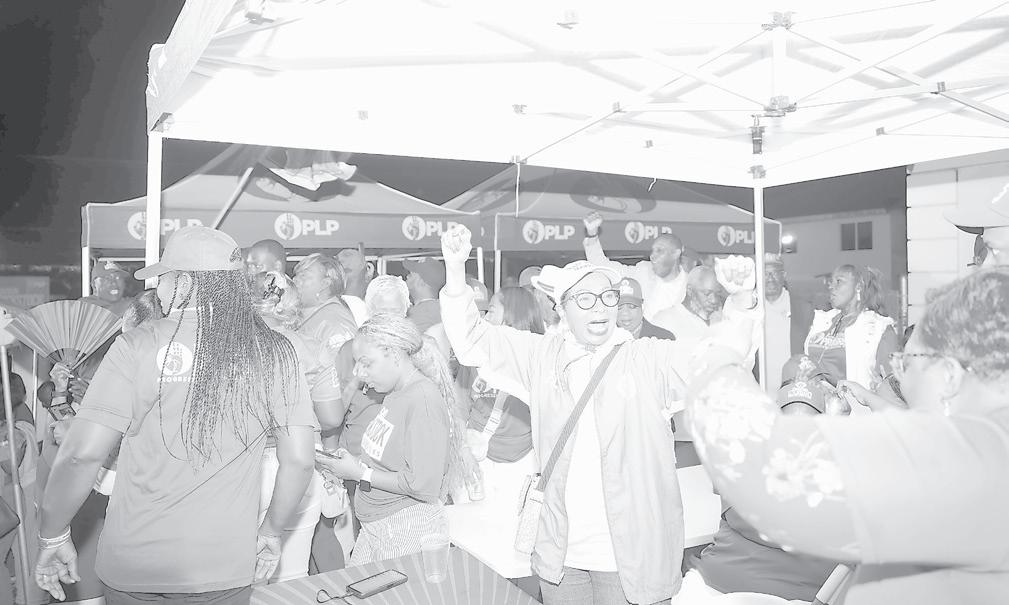

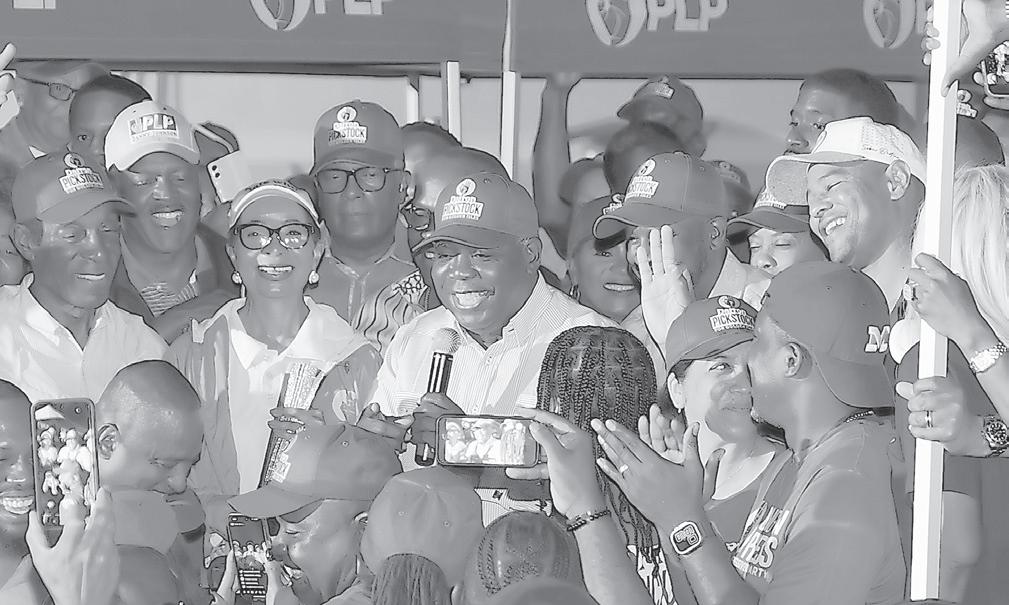

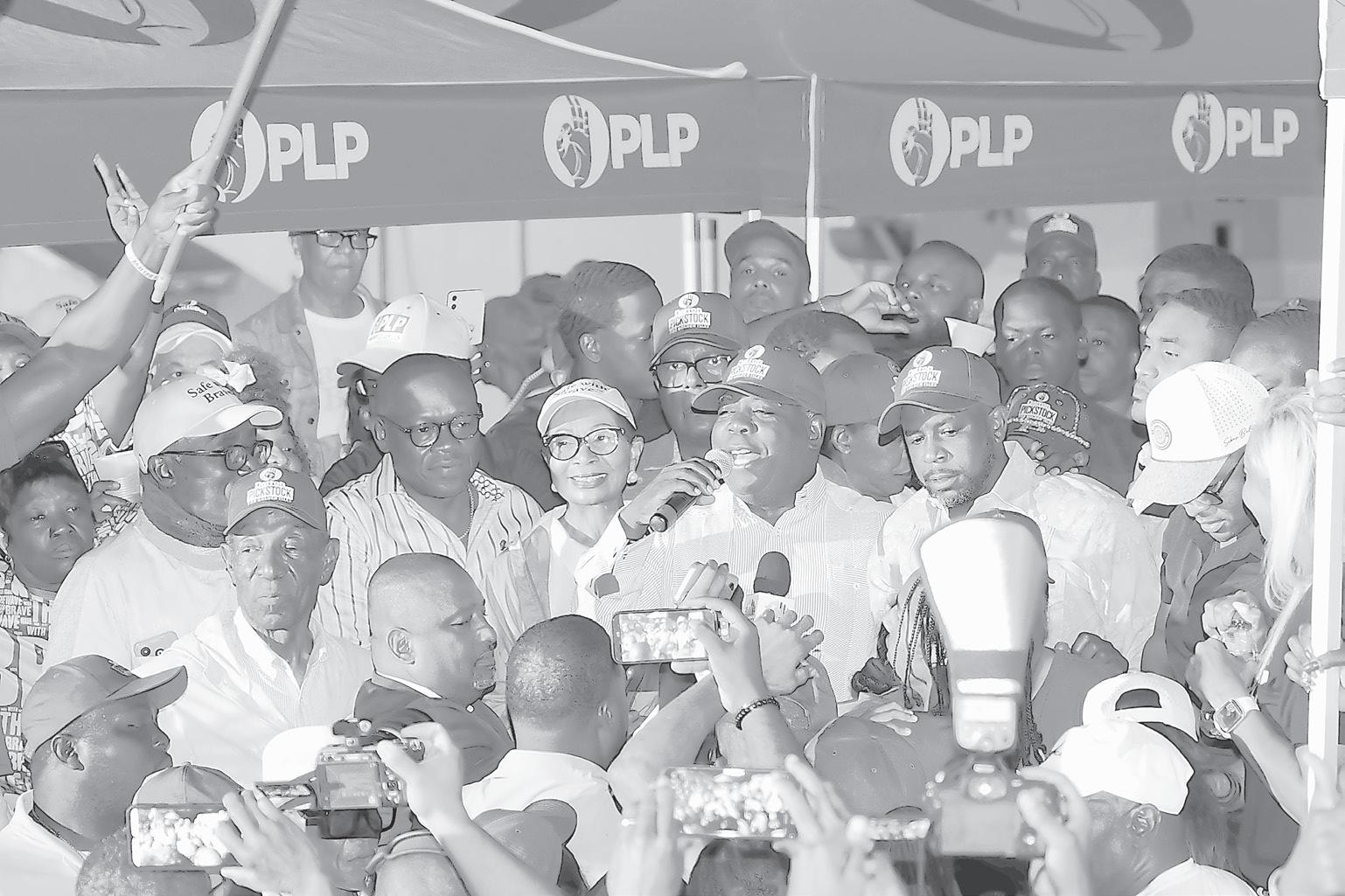
supporters to continue their work, noting that while much has been accomplished, there is still more work ahead.
He said walking and talking with Golden Isles residents made him realise that not everyone has felt the government’s economic gains, and he pledged to
ensure that changes.
He also had a message for Mr Brown, thanking him for participating in democracy, adding that “nothing beats a failure without a try.”
“I suspect that he will try again…but he ought to have listened to papa (because) daddy put a beating on him,” he said,
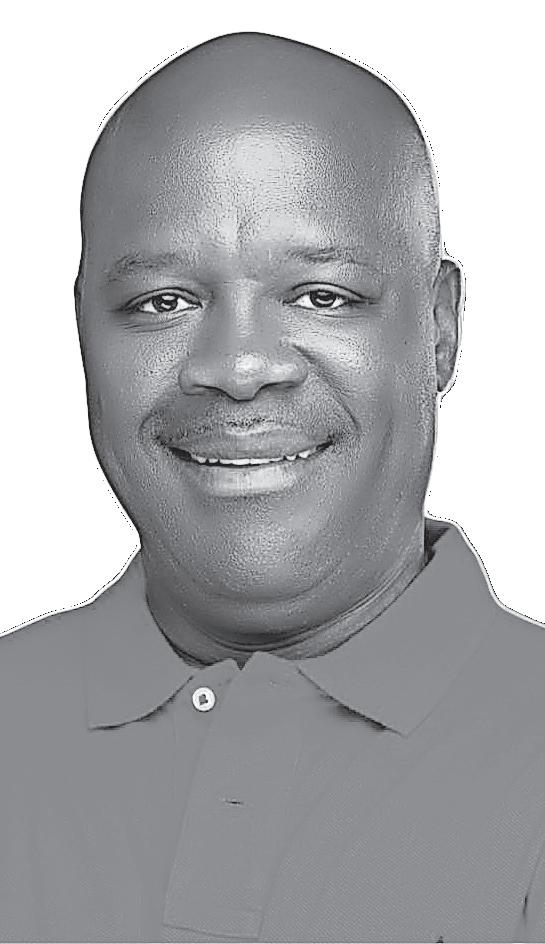
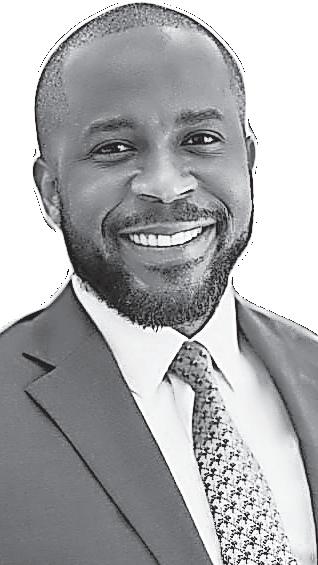
referring to former Prime Minister Hubert Ingraham’s advice to sit the race out.
Turning to Mr Pickstock, he urged him not to take the win for granted, but to continue working and earn the trust of his constituents.
Delivering his victory speech, Mr Pickstock thanked constituents for
their trust while paying tribute to Mr Vaughn Miller, whose passing created the vacancy in the House of Assembly.
He said the win would not have been possible without the support of constituents and his family, pledging that the real work begins today.
He acknowledged that trust must be earned and promised to do so through consistency, by listening and working diligently for his constituents.
“When I walked through these streets, I met parents doing all they can to give their children a fair start. I met elders who thought and who have held this community together through quiet strength,” Mr Pickstock told supporters. “I met young people searching for opportunity and in every home, in every corner, I felt the same message - ‘Stay close to us’ is what they said to me. ‘Stay close to us, Darren Pickstock. Work with us. Stand with us’ and I promise you that that is exactly what I will do.”
This is the second by-election to go in the PLP’s favour since it assumed office.

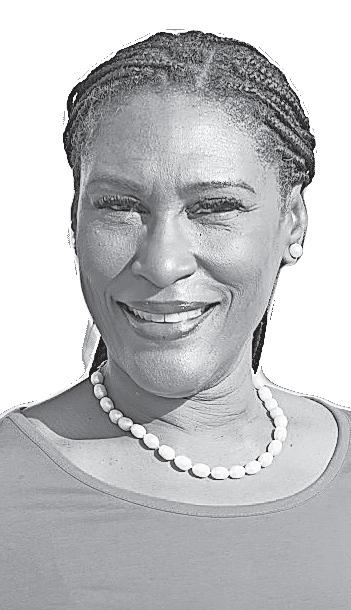
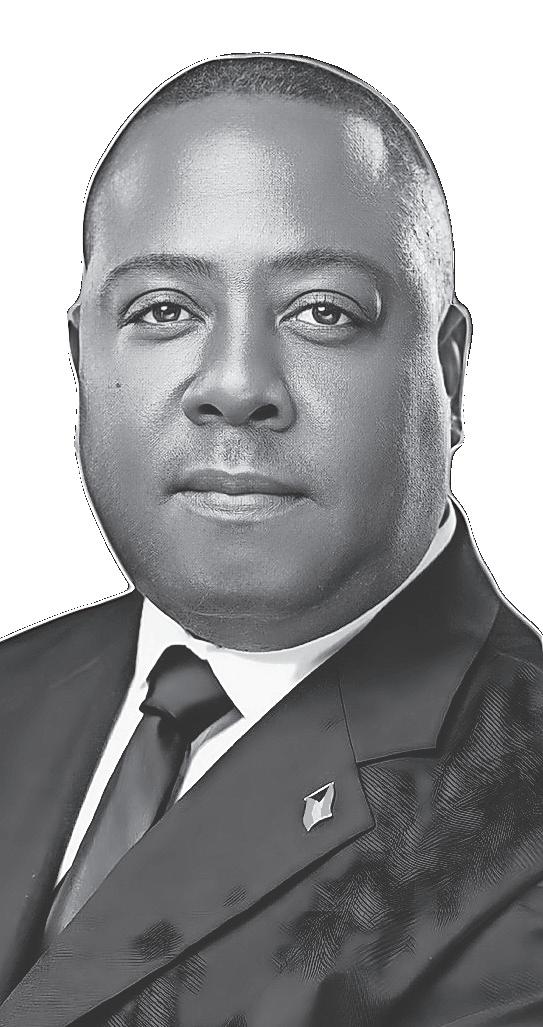


By JADE RUSSELL Tribune Staff Reporter jrussell@tribunemedia.net
THE mood at the Free National Movement’s Golden Isles constituency office was flat and subdued last night as supporters lost hope that the party’s candidate, Brian Brown, could pull off a by-election win.
When Darron Pickstock was officially declared the winner, sighs, murmurs, and confused expressions spread across the faces of FNM supporters – a sharp contrast to the lively celebrations at the PLP office just a block away.
One FNM supporter, patting others on the back, said: “We fought a good fight. No need to be depressed.”
Mr Brown was greeted with cheers despite the loss.
He smiled as he addressed supporters, though his eyes appeared emotional. Mr Brown, who also ran unsuccessfully in the 2021 general election, said he was not discouraged by last night’s result.
“We will be here again tomorrow, the office will be open,”he said. “I’m ready to go. I’m not dismayed by what today is. Today is about to finish, and so tomorrow is about to start
“On Thursday, I will be feeding 500 minimum people from Golden Isles for Thanksgiving.”
Mr Brown said he would begin visiting residents today to thank them for their support.
FNM Leader Michael Pintard noted that Mr
“We will be here again tomorrow, the office will be open. I’m ready to go. I’m not dismayed by what today is. Today is about to finish, and so tomorrow is about to start.”
Brown has committed to keeping his office open and continuing his community programmes. He described the by-election as a close race in which the party fell a “bit short”, praising Mr Brown’s heart, courage, and integrity.
Mr Pintard also addressed the low voter turnout, saying the party must work harder to inspire residents to vote.
He added that FNMs had nothing to be ashamed of and that everything would be alright.
He said the party would resume its work today, meeting residents to determine how best to serve them heading into the general election.
Asked about critics who said the loss reflected poorly on his leadership, Mr Pintard said he would evaluate that as well.
He added that while he was unsure how the PLP viewed the results, the FNM would be prepared if an early election were called.
After his remarks, several supporters vowed to stand with Mr Brown in the general election, saying the close race strengthened their belief that the seat is
- Brian Brown
winnable.
Mr Pickstock won 1,873 votes, or 48.36 percent.
Mr Brown received 1,636 votes, or 42.24 percent. The Coalition of Independents’ candidate, Brian Rolle, received 348 votes, while independent candidate Karen Butler received 16.
Earlier in the evening, a small crowd gathered at the FNM office anxiously awaiting results. Some supporters watched vote counts on their phones, while others walked around uncertain about the outcome.
At one point, when Mr Pickstock appeared ahead, a group of women formed a prayer circle, asking for the race to turn in their party’s favour.
One woman said the PLP’s failure to secure a landslide showed the FNM still had a strong chance.
“Mr Brown is still close. So we are optimistic and we honestly believe that we’re going to get over the finish line,” she said.
Other supporters argued that Mr Pickstock benefitted from the “public’s purse”, accusing the government of using resources to influence the vote.

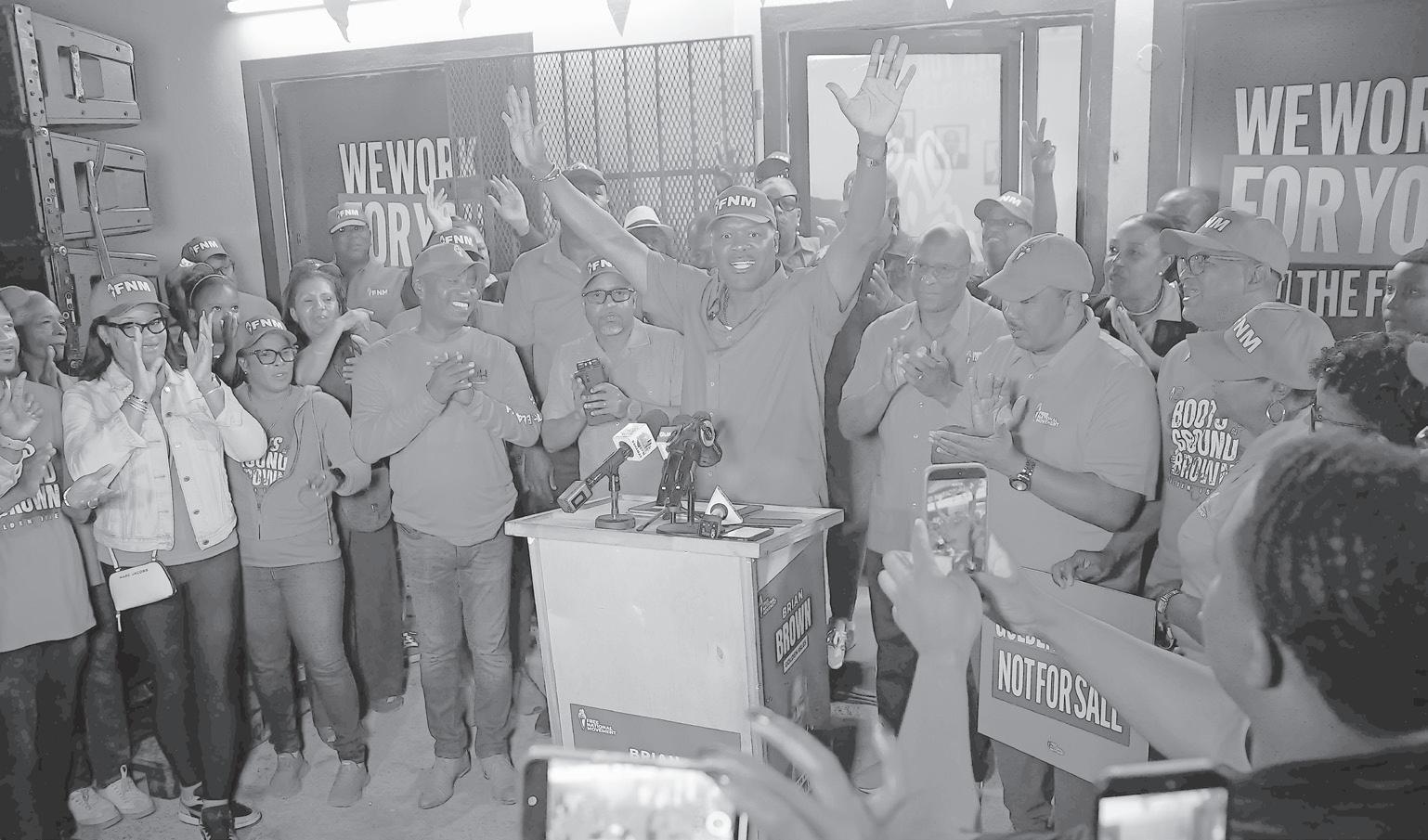
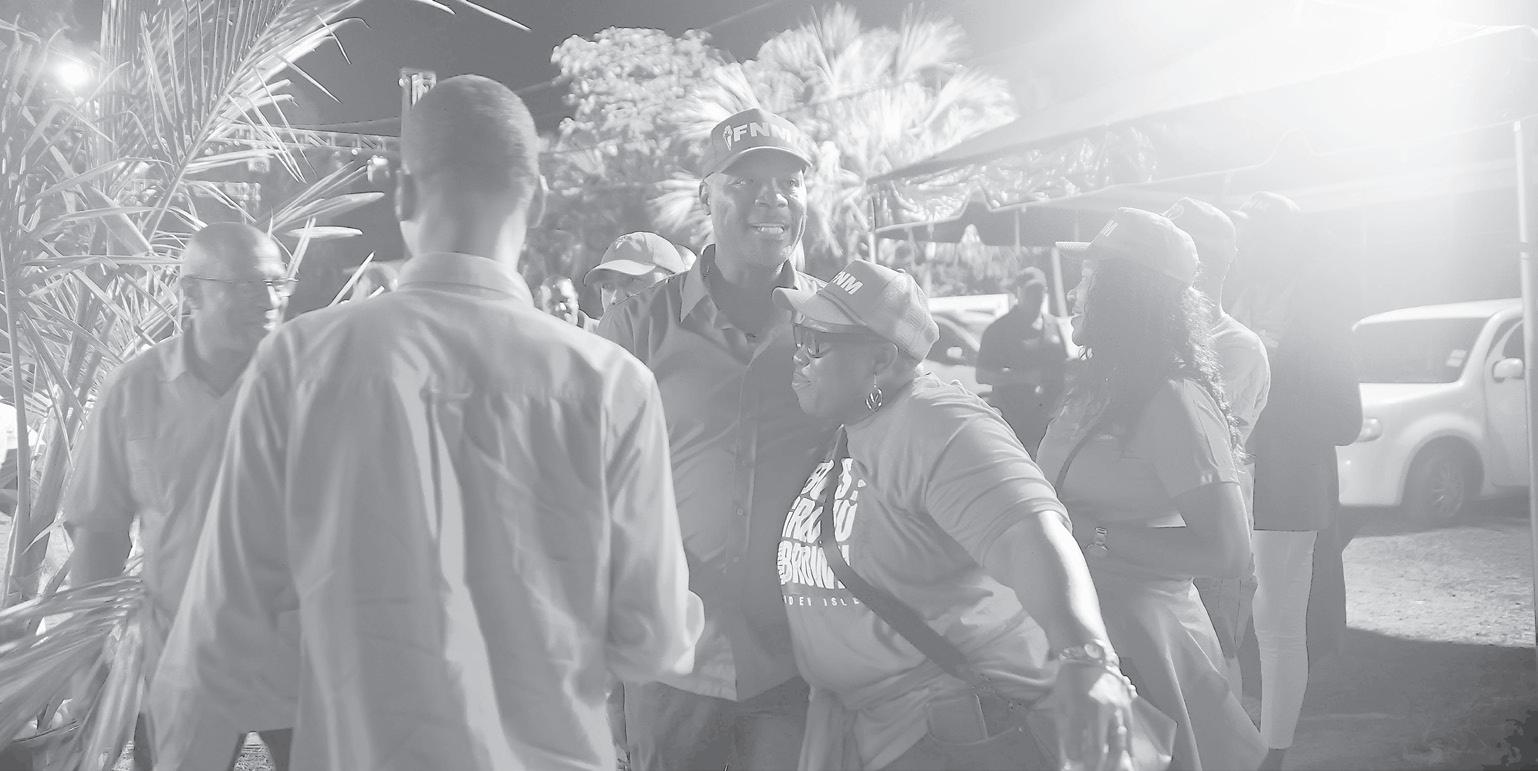
As projections showed Mr Pickstock in the lead, several PLP supporters drove past the FNM office honking horns and shouting “PLP or nothing” and “We win this.” Still, many FNMs held out
hope until the very end that Mr Brown would prevail.
East Grand Bahama MP Kwasi Thompson, speaking to The Tribune as results were being tallied, said the party remained optimistic.
Asked if the FNM had
any regrets about contesting the seat, Mr Thompson said:
“Absolutely none.”
“The numbers speak for themselves because the numbers are extremely close.”
Golden Isles vote exposes COI’s ‘political ceiling’ as third party fails to advance
LYNAIRE MUNNINGS Tribune Staff Reporter lmunnings@tribunemedia.net
THE Golden Isles by-election delivered a clear message about the Coalition of Independents’ political ceiling: despite years of public frustration with the PLP and FNM, the COI remains far from competing as a national alternative.
COI candidate Brian Rolle secured 348 votes — 8.99 percent of ballots cast — a figure that places the movement essentially where it stood in 2021 and underscores how
little electoral ground it has gained, even as political dissatisfaction has deepened.
Founded in 2020 as an answer to decades of PLP–FNM dominance, the Coalition entered the political scene promising disruption. Its national debut in the 2021 General Election, when it collected roughly 6 percent of the vote, hinted at potential. In the years since, the party has expanded its organisational footprint, ratified dozens of candidates, and earlier this year added its first sitting MP. Yet the Golden Isles
result shows that infrastructure and visibility have not translated into broad voter embrace. The constituency remained firmly a two-party contest, with COI support clustered in a few polling divisions — 14.23 percent in Division 4 and 15.46 percent in Division 6B — and far lower elsewhere. The final tally reinforces a pattern: isolated pockets of enthusiasm, but no sign of the sustained surge required to challenge the established parties.
The Tribune was unable to reach party officials up to press time.
FORMER NBA player
Rick Fox announced last night that he will run in the upcoming general election, ending weeks of speculation about a possible move into politics.
In a social media post, Mr Fox, who’s also an ambassador-at-Large, said his decision to enter frontline politics was driven by his passion for the country, adding that The Bahamas we all envision can no longer wait to become a reality.
“For months, I’ve been listening closely to the hopes and frustrations of my fellow Bahamians. One truth is clear: the future of The Bahamas will depend on the choices we make right now,” he wrote on Facebook.
“You’ve shared that you want more transparency, a more modern economy that prioritizes affordability and security, and a country where opportunity is our reality, not just a promise. I share that vision.”
Mr Fox did not reveal whether he would run independently or with a political party , but recently told a
Guardian radio host that he met with both major parties to discuss a possible candidacy.
He claimed that FNM leader Michael Pintard had been most aggressive in pursuing him.
As for why now, Mr Fox stressed the need to act quickly, warning that the country is running out of time to address key issues, including youth empowerment, efficient governance, innovation, healthcare, housing, and public safety.
“As a candidate and as a leader for the Bahamas I will demand transparency, honesty, integrity while demanding a level of excellence from all of us,” he said.
“This is bigger than party politics. This is The Bahamas versus the world.
Imagine a nation where every Bahamian feels secure, safe, empowered, and proud. Where opportunity flows, innovation thrives, and our people shape the world from home.
More is on the way.”
Mr Fox, who has hinted about a run into politics, recently mocked politicians
for showing up “as Action Heroes” only when elections are near. In a Halloween-themed post, he said the “real scare” was that “someone had to die and a by-election had to be called before a single pothole got filled and a single road got paved” in Golden Isles.
The comments drew warnings from PLP supporters, according to Mr Fox, who claimed he should not have commented on the Golden Isles by-election due to his diplomatic stance. However, Mr Fox pushed back, noting that “a sitting ambassador with a portfolio is openly endorsing a candidate while currently running for office himself” — a reference to non-resident Ambassador Sebas Bastian, who is contesting the Fort Charlotte seat.
Foreign Affairs Minister Fred Mitchell appeared to rebuke him in an audio message last week, saying ambassadors serve the government that appoints them and that “the honorable course is clear” if they disagree with the authority that put them in office.
By KEILE CAMPBELL Tribune Staff Reporter kcampbell@tribunemedia.net
VOTERS in Golden Isles pressed for long-delayed infrastructure upgrades and stronger day-to-day representation yesterday as the by-election drew steady turnout across the constituency, with residents listing potholes, flooding, neglected community spaces and unreliable bus service as what mattered as they cast their votes.
Adelaide Primary School and Anatol Rodgers High School served as the two polling stations, each attracting a consistent flow of voters from early morning.
Adelaide Primary saw a burst of disorder shortly before 8am when a surge of eager residents “rushed” the gates, anxious to cast their ballots. Police quickly restored calm, and voting proceeded without further disruption.
Outside both polling stations, residents told The Tribune they were satisfied with the voting process but stressed that Golden Isles has endured years of unresolved concerns.
Ms Butler, a resident of 36 years, said she has “seen a lot come and go” and wants better representation. She
described the voting experience as “very smooth” and “fair”.
Another lifelong resident, Mr Smith, said he “walked in and out, no problems”.
The Adelaide Village voter said the constituency needs wide-ranging help and that the next MP “has a lot of work to do”.
“We need the park, we need job opportunities, we need a lot of stuff,” Mr Smith said. “I have a long list, and I gave it to some of the hopeful candidates — so we’re just waiting on one of them to win.”
A resident of 30 years said infrastructure should be the next MP’s immediate focus, citing persistent potholes, few organised community activities, the need for park renovations and chronic flooding.
Ferron Young, 28, who has lived in the constituency since he was “around 11 or 12”, said this was his third time voting and that he hopes whoever is “best for the nation” prevails.
“I hope that there’s no unscrupulous activity,” Mr Young said. “Whatever party is selected, I hope God decides what the will is for this nation.”
Terry Graham, a resident for more than 26 years, said Golden Isles is her second home and urged action on
flooding and deteriorating roads.
“Particularly in Coral Harbour, you need a truck or big bus when the water flows up,” Ms Graham said. “They always say they fixing the road, but for 26 years I don’t see it fixed — I see it patched.”
Assistant Commissioner of Police Mareno Hines said officers were stationed at polling sites from the early hours, supervising the arrival of ballot boxes and managing crowds. He said they encountered a large gathering of early voters at Adelaide Primary but noted that the group remained orderly once the gates opened.
While he declined to disclose the number of officers assigned to the by-election, ACP Hines said the Royal Bahamas Police Force had sufficient manpower to handle any situation. Traffic officers were also deployed to keep vehicles and pedestrians moving safely.
Officers later intervened after a motorcade with loud music approached the polling station. ACP Hines said voters were reminded that campaigning is prohibited near polling sites and that the vehicle was instructed to stop. He added that he was unaware of any complaints concerning signage.

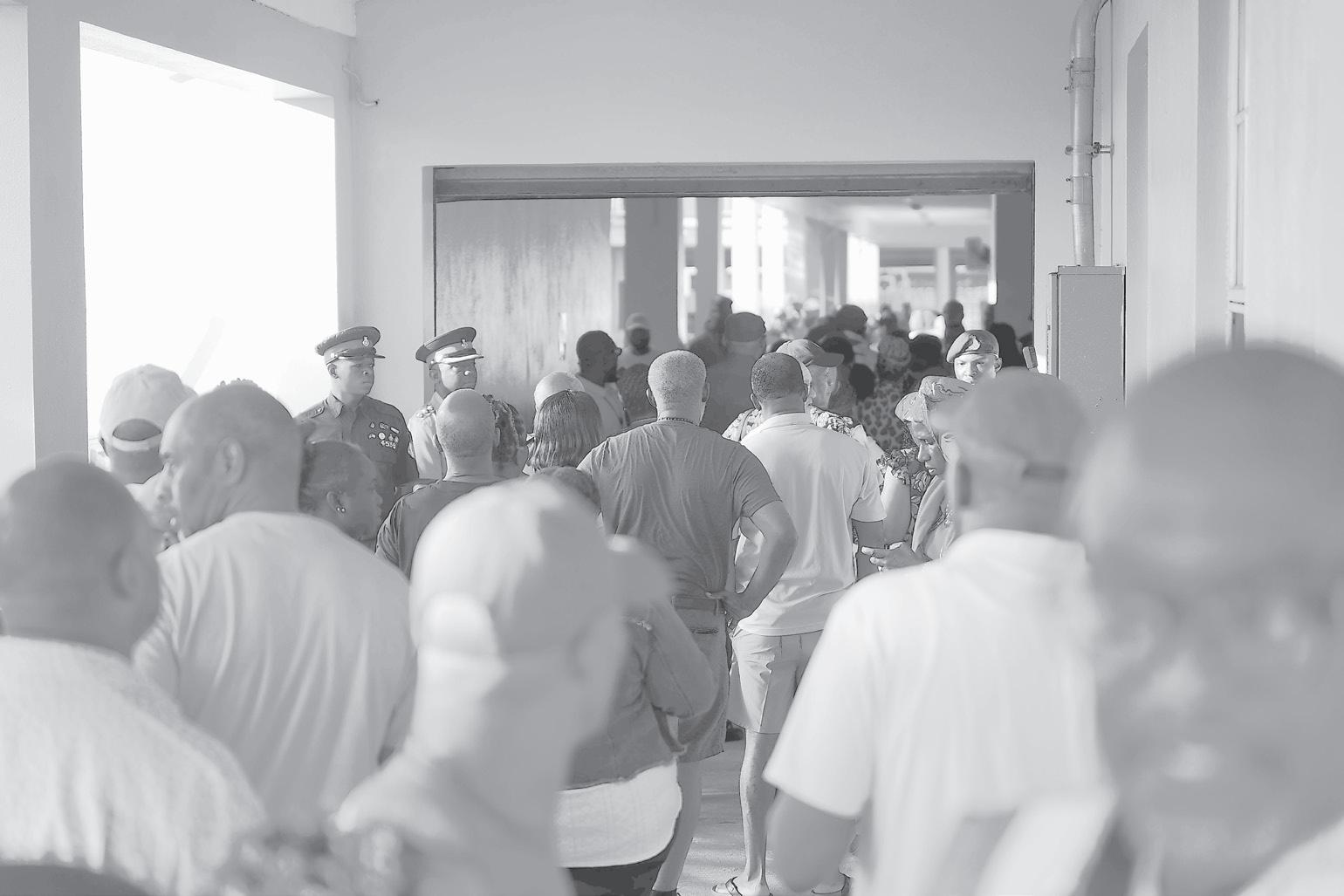


“In a democracy, you give certain concessions,” ACP Hines said. “However, we do not want to break the rules. For all intents and purposes during this time, this is a sacred place. We don’t want to send the message that anything that’s going to be perceived as unfair is going to be allowed, and so we caused that vehicle to cease and desist.”
Senator Michaela Barnett-Ellis, part of the Free National Movement’s election legal team and present at Adelaide Primary on behalf of her party, said voting began on time and that pre-poll procedures
unfolded smoothly. She said the opening rush stemmed from party agents seeking positions inside classrooms, adding that the first moments of voting are “always very passionate and energetic”.
She said she was satisfied that the process remained fair but noted that the method of entering polling rooms should be “codified” to ensure consistency.
“Traditionally speaking, it’s first come, first serve — who’s first at the gate gets to go first,” she said. “That process was not followed this morning, even though we were the first at the gate. We need to codify the
process so that it happens the same way every time.” Progressive Liberal Party deputy coordinator Alex Storr, stationed at Adelaide Primary, said he was pleased with how officials handled the morning’s activities. He said the initial rush involved supporters “on all sides”, but police quickly restored order.
“All the officials here — the returning officer, the presiding officers, even the police officers — have been fair,” he said. He said officers “were able to be in control quickly and make sure that everyone went in an orderly fashion.”

NULLIUS ADDICTUS JURARE IN VERBA MAGISTRI
“Being Bound to Swear to The Dogmas of No Master”
LEON E. H. DUPUCH,
Publisher/Editor 1903-1914
SIR ETIENNE DUPUCH, Kt., O.B.E., K.M., K.C.S.G., (Hon.) LL.D., D.Litt .
Publisher/Editor 1919-1972
Contributing Editor 1972-1991
RT HON EILEEN DUPUCH CARRON, C.M.G., M.S., B.A., LL.B.
Publisher/Editor 1972-
Published daily Monday to Friday
Shirley & Deveaux Streets, Nassau, Bahamas N3207
TELEPHONES
News & General Information
(242) 502-2350
Advertising Manager (242) 502-2394
Circulation Department (242) 502-2386
Nassau fax (242) 328-2398
Freeport, Grand Bahama (242)-352-6608
Freeport fax (242) 352-9348
WEBSITE, TWITTER & FACEBOOK
www.tribune242.com


THE people of Golden Isles have spoken – but you can bet your bottom dollar that there will be plenty of people interpreting what they said in different ways. The by-election to fill the vacancy brought about by the passing of Vaughn Miller has a winner. Darron Pickstock followed the tradition of most by-elections being won by a candidate from the incumbent government.
However, the biggest number to watch out for was the turnout – which clocked in at just 51 percent of the number of registered voters.
So let us look at it by the numbers.
In 2021, there were 7,391 registered voters in the constituency – last night’s by-election had 7,926.
Mr Pickstock won the vote with 2,007 votes – down on the 2,471 achieved by Mr Miller when he won in 2021. That was about the same percentage of the overall vote, at 50 percent. To secure the win on a reduced number of votes will be of little comfort as the countdown begins to the general election.
Mr Pickstock has just a few months to prove himself to the constituency in order to make sure this is not just a brief moment in the Parliamentary sun. For Brian Brown, for the FNM, this was a repeat. He was the FNM candidate who lost to Mr Miller in 2021. Back then, he secured 1,844 votes. This time, he earned just 1,650 votes. Despite being deep into a PLP administration, he could not convince the same number of voters to show up this time.
That said, Mr Brown’s percentage was up, rising from 37 percent in 2021 to 41 percent yesterday – but still ending some way short. He is the likely candidate again for the general election, despite being rejected again by the constituency.
FNM leader Michael Pintard also needs to wear this second by-election defeat around his neck. He is unlikely to face a major challenge as leader before the general election – but this result gives him no encouragement for the road ahead. Then there was the Coalition of Independents. In 2021, Don King won 346 votes. This time, Brian Rolle won 365 votes. That took the share of the vote up from 7.07 percent in 2021 to nine percent this time – but the field
of candidates was more crowded in 2021. Back then, the DNA was still in the candidate list – drawing 2.51 percent of the vote. That split the vote of those looking to vote for something other than the two major parties – so perhaps Mr Rolle should not take too much confidence from that increase.
However, the presence of the COI as a party to draw votes away does have an effect. Add together the FNM vote and the COI vote and you get a total greater than that of Mr Pickstock. More people voted for someone other than the winner.
No one should be sitting comfortably on these results.
Ahead of the by-election, we cautioned in this column that the biggest thing to watch out for was the turnout.
There was a significant drop in the turnout from 66.23 percent to just 51 percent.
That can be attributed to many things, we are sure, including the general malaise that often affects by-elections around the world, not just here.
But with major figures on the ground for both the FNM and PLP, that was not enough to generate enough enthusiasm to get people to the polls. There is a lack of desire from many voters to go and take part in the process –unconvinced by any of the candidates on show.
The lesson that any candidates should learn for the upcoming election must be that those who can get their voters out to vote on the day have a chance to thrive.
For each and every party, there are no laurels to rest on. The PLP can say they won the seat. The FNM can say the share of its vote went up. The COI can say the same about vote share. Not one of them can say that is enough.
It is time for every candidate to hit the road, to listen to what voters want – and to convince people they will live up to the promises of the campaign trail.
That will not be easy. But this is the leadership of the nation – it should not be easy.
Prime Minister Philip Davis, in the wake of the vote’s outcome, said it “ain’t long now”. The race has already begun.


EDITOR, The Tribune.
ALMOST a week ago, the Leader of His Majesty’s Official Loyal Opposition, Michael Pintard, stood on a rally stage adorned in full party colors and delivered what he clearly intended to be a shocking revelation. Waving what he suggested was intelligence of national significance, he claimed, without a shred of verifiable evidence, that a bag of Bahamian passports had been discovered heading “down south” and somehow traced back to national vulnerabilities and illicit activity.
This was not an act of national concern. It was political theatre. And it highlighted a level of irresponsibility that should disturb every Bahamian, regardless of political persuasion. In that moment, political spectacle was placed above sovereign preservation.
Allegations involving Bahamian passports, one of our most sensitive national assets, demand verification and immediate communication with the proper authorities. They do not belong on a political stage, fueled by the cheers of party supporters and dressed up with props meant to provoke rather than to inform.
When the Leader of the Opposition, a constitutionally recognised officeholder and a participant in the governance of this nation, releases explosive rhetoric without validation, or substantiation or even basic supporting detail, the issue becomes more than politics. It becomes a matter of personal and national integrity.
This kind of reckless allegation does more than attack a government; it undermines the credibility of the hardworking public servants who safeguard
these sensitive processes. That is not advocacy. It is political provocation.
What should truly alarm Bahamians is not merely the allegation, but the precedent it sets.
Public confidence in our institutions, the Department of Immigration, the Passport Office, and the Royal Bahamas Police Force, all depend on responsible leadership. Weaponising vague, unverified claims for political gain threatens these institutions in ways that risk destabilising our democracy itself.
Today, when misinformation spreads rapidly across print and social media, leaders must exercise heightened responsibility. This is not the time for a three-part weekly political drama, with the public waiting for the next episode. At a time when rumors can outpace facts, leadership must be grounded in accuracy, credibility, and sound judgment. The Bahamian people deserve far more than sensationalism dressed up as security intelligence.
Nearly a week later, no official report has been filed with the relevant authorities, further underscoring the recklessness of the embattled Opposition Leader. Such behavior should disqualify any public figure from claiming to act in national interest.
The Royal Bahamas Police Force is the statutory investigative authority. As such anyone, especially a public official who believes a crime has occurred, has a duty to report it. Rally microphones do not trigger criminal investigations. Innuendo does not protect
our borders. Rumor does not strengthen our systems. And no nation can afford leadership that treats matters of national security carelessly.
A leader’s public utterances, even at a political rally, shape public perception, influence confidence in our institutions, and can spark unnecessary fear when unfounded. When a public figure mishandles sensitive claims, the consequences extend far beyond a crowd of supporters. They reach international observers who gauge the stability and seriousness of our governance. The biblical principle reminds us that those who are careless with little cannot be trusted with much. That standard of stewardship applies equally to public office. Accountability, clarity, and responsibility are not optional virtues; they are national necessities. Therefore, when political figures abandon these principles for theatrics, they endanger not only their own credibility but also the trust and stability essential to a functioning democracy.
I must underscore that national security is not politically prop. It is the backbone of our sovereignty, which in turn reflects the dignity and safety of our people. Anyone who brings that into disrepute acts contrary to democratic values and should not be entrusted with representing the people of The Bahamas. As a reminder, privilege belongs in Parliament not a political stage. To this end, the Opposition Leader owes the nation’s clarity. Urgently and unequivocally.
TAMAR V MOSS Nassau, November 17, 2025.
EDITOR, The Tribune.
FOR some time now, I have debated whether to write this letter and I have finally decided to put fingers to keyboard, based on pure principle in honour and in memory of my late husband, Jackson Burnside III, who I know would have spoken out strongly about the degree of unmitigated foolishness this topic has generated for a whole year!
It is unbelievable that here we are – practically one month away from the 2025 Junkanoo Boxing Day parade – completely enveloped by a foreboding cloud of controversy that has permeated the very soul of our precious, centuries-old National Festival that survived the cruel, atrocious journey of the Middle Passage, yet nevertheless took firm root, embedded in the belly of the Bahamian people where it resides, constantly nourished by the fertile cultural soil of our ancestors’ souls!
On May 28, 2002, Jackson made a presentation entitled ‘Time To Go; No Time To Waste’ in which he stated: “Culture itself is simply common sense that makes a people special…..Culture is everything that we do; everything that makes is who, why, when, and where we are ourselves…..Junkanoo is the most flamboyant expression of the spirit of the Bahamian people and
a fountain-head of artistic expression.” Junkanoo emanates from the soul of the Bahamian people, and that is where it belongs – bottoms up! It is not the place for gubment to attempt to ‘direct’ the soul of the Bahamian people from the top down! So on behalf of my late husband, I ask you, the Junkanoos and the Bahamian people as the keepers of this rich patrimony and heritage, how in the world we have reached this precarious stage in our journey where gubment interference has skewered our perspective and divided us to our detriment as a people? How has a personal spat between members of a splintered Junkanoo group escalated into a ‘divide and conquer’ division between Junkanoo groups? This is unconscionable since many other junkanoo groups have split over the years without controversy! What makes it even worse is the irony of the situation, since two years ago Bahamian Junkanoo was successfully inscribed by UNESCO on the Representative List of the Intangible Cultural Heritage of Humanity. This global recognition, in and of itself, should have been a huge source of pride that united Junkanoos into a stronger cohesive cultural force.
This year-long junkanoo debacle appears to have ignited a divisive lust for power and control amongst all factions, which is indeed a sad state of affairs! It also demonstrates a gubment lack of understanding and appreciation of our precious Bahamian Culture that has stymied our country’s growth since Independence. This is why Bahamian culture has remained a pathetic ‘Department appendage’ arbitrarily tagged to the tail of one Ministry or the other since Independence. Frankly, I am as disgusted with this situation as I was when the gubment announced junkanoo carnival as a cultural saviour! In a letter to the Guardian on February 12, 1992, Jackson wrote: “Few countries can compare with The Bahamas for creativity and innovation…..The creativity of our people is our greatest resource….Our survival depends on the commitment of the leadership and the full appreciation of ourselves. By placing value and appreciating our native ingenuity, Culture can become our most productive social, economic, as well as political resource.” If we, ourselves, do not respect our own, then who will?
Yours sincerely, PAM BURNSIDE Nassau, Bahamas November 24, 2025
Petty claimed he had been told the victim was a prison officer and that “a lot of talk” online suggested BDOCS staff might attempt to harm him. He said he believed some officers “may try to harm me in retribution for the death of their colleague,” insisting he did not commit the act.
He also pointed to a Facebook screenshot that, in his view, confirmed his fears. In that post, attributed to someone identified as “Da Real Ashley,” the writer said: “Can’t wait to say ‘Welcome to the Bahamas Department of Correctional Services where you will be our number one priority’.”
The judge noted that the post had been included in Petty’s affidavit package but found no evidence that other BDOCS officers shared the sentiment. “The applicant avers that the incident is the subject of much social media comment,” the ruling said, but he provided “without more” any supporting facts to show that
officers intended to harm him.
Justice Williams rejected the suggestion outright, writing that the court must recognise the oath sworn by correctional officers to ensure the welfare and protection of all inmates.
Officers, he noted, are trained to separate personal feelings from their professional duty, and the applicant had shown no evidence to suggest they would not do so in this case.
The judge also pointed to public comments by Commissioner of Corrections Doan Cleare, published the same day as the hearing, in which Mr Cleare acknowledged the emotional weight of the killing but gave an unambiguous assurance that Petty would be protected. He reminded the public that BDOCS is mandated “to take the worst of the worst” and return them safely to court. He said officers would exercise restraint and “do their job,” even if the circumstances were difficult.
Justice Williams accepted the Commissioner’s assurance, calling it dispositive
of Petty’s central claim of potential harm.
The judge then turned to the threshold issue: whether the application should have been considered urgently at all. Under the judiciary’s practice direction, urgent bail applications can be fasttracked only under narrow circumstances: if the applicant is pregnant, a minor, medically compromised because of age, suffering from a serious existing medical condition, or where prosecutors do not object to bail.
None of these applied to Petty.
The ruling emphasised that even when an urgent application does not qualify on paper, the court still has discretion to hear it. However, with the Commissioner’s assurance in hand and no supporting evidence from the applicant beyond his fears and a lone social media post, Justice Williams found no basis to grant the request.
“In the premises,” the judge wrote, “the applicant’s urgent bail application is refused.”
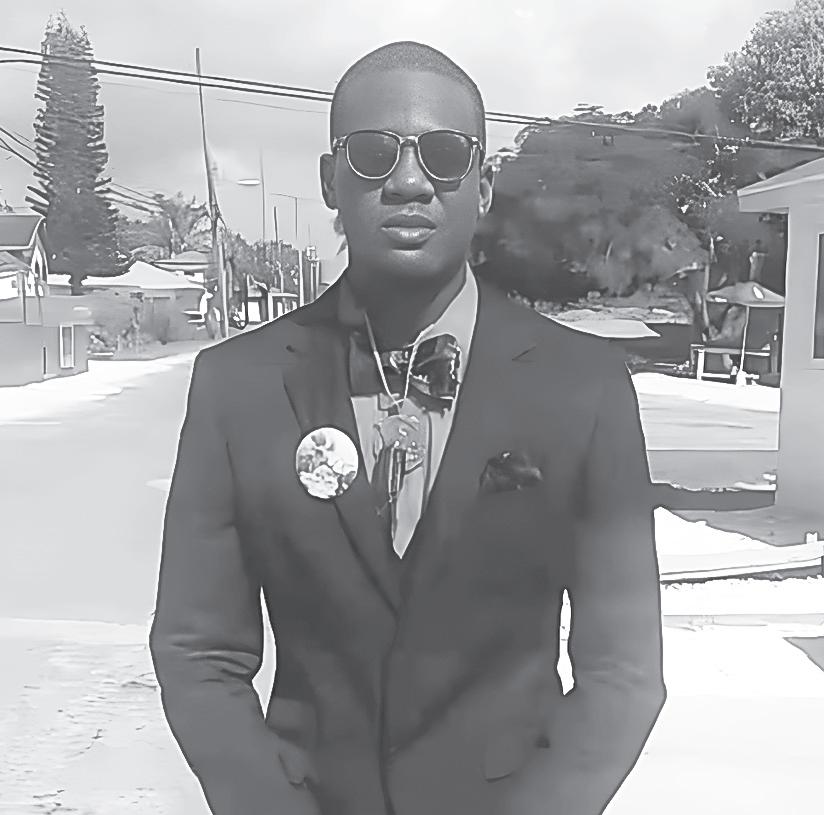
By RASHAD ROLLE
News Editor
TWO Bahamians were indicted in separate US federal districts last week on charges linked to passport fraud and false claims of American citizenship, according to statements from prosecutors in Pennsylvania and Florida.
In the Middle District of Pennsylvania, a federal grand jury indicted 79-year-old Victor Charles Gibson on November 18 for passport fraud and making a false claim to United States citizenship. Prosecutors allege that on or about March 29, in Carbon County, Pennsylvania, Gibson knowingly made a false statement in a US passport application
and represented himself as a US citizen.
The US Department of State investigated the matter, and Assistant US Attorney Tatum Wilson is prosecuting the case.
The charges fall under Operation Take Back America, a US Department of Justice initiative that focuses on immigration-related offences and transnational criminal activity.
By PAVEL BAILEY
Tribune Staff Reporter pbailey@tribunemedia.net
THE director of public prosecutions yesterday filed an appeal against the decision to grant bail to a mother and daughter convicted of attempting to murder two of their tenants on an unnamed road in Fox Hill in 2021.
Michelle Williams, 57, and her daughter Glenresha Williams, 37, were found guilty by an 8–1 jury on two counts of attempted murder before Justice Renae McKay.
Prosecutors said the pair, along with a male accomplice, tried to kill Adrian Cooper and Savannah Bain with a handgun on an unnamed road near Komer
Street on October 21, 2021. The victims testified that the women cut them off in traffic. They said Glenresha confronted Savannah outside their vehicles before a male exited the defendants’ vehicle and opened fire. The prosecution appealed Justice McKay’s refusal to revoke the convicts’ bail under section 8A of the Bail Act, Chapter 103, arguing she wrongly exercised her discretion by granting bail pending sentencing. On Friday, lead prosecutor T’Shura Ambrose strongly objected to the decision. She told the court she had been instructed by Director of Public Prosecutions Cordell Frazier to oppose bail, citing the risk that the now-convicted
women might abscond.
Defence attorney Raphael Moxey asked that his clients remain on bail until sentencing.
Justice McKay, noting the Crown’s objection, said judicial precedent allowed her to extend bail to people awaiting sentencing. She said the conditions included electronic monitoring, a 9pm to 6am curfew, reporting to the Fox Hill Police Station every Monday, Thursday and Saturday, and surrendering their passports. The women were remanded pending the outcome of the appeal. They return for sentencing on January 27, 2026. In addition to Ms Ambrose, Ashton Williams also prosecuted the matter.
By PAVEL BAILEY Tribune Staff Reporter
pbailey@tribunemedia.net
A MAN was remanded to prison yesterday over his alleged involvement in the fatal stabbing of Elvardo Munroe in Yellow Elder Gardens last month. Police allege that Michael Adderley, 33, fatally stabbed Munroe, 21, during a physical confrontation around 5pm on October 30 on Graham Drive.
Munroe died in the hospital on November 7, becoming the nation’s 72nd homicide victim of the year. His mother, Ireka Smith, told The Tribune earlier this month that she was frustrated by the delay in charges being brought. Ms Smith said she wanted justice and that her only child “didn’t deserve this”. Adderley was not required to enter a plea to a murder charge before Senior Magistrate Kara
Turnquest Deveaux. He was told the matter would proceed to the Supreme Court by way of a voluntary bill of indictment (VBI). He was also informed of his right to apply for bail through the higher court. Adderley was remanded to the Bahamas Department of Correctional Services until service of his VBI on March 16, 2026.
Inspector K Wilkinson prosecuted.
Man hospitalised after stabbing incident on Baillou Hill Road
A 43-YEAR-OLD man was hospitalised early yesterday morning after being stabbed during a verbal argument with another man. Shortly after 2am officers responded to an establishment on Baillou Hill Road, where they found the man with stab injuries. Emergency services treated him at the scene and transported him to the hospital, where he was listed in stable
condition. Preliminary reports indicate the argument escalated, leading the suspect to stab the victim with a sharp object before fleeing in an unknown direction.
If convicted, Gibson faces a maximum penalty of thirteen years in federal prison.
In a separate case in the Middle District of Florida, 65-year-old Bahamian national Rochelle Deborah Johnson was indicted on charges of illegal voting, passport fraud, and falsely claiming US citizenship to obtain state benefits. Prosecutors allege Johnson used a fraudulently obtained passport to take an international flight in 2016 and attempted to renew it in 2018 by falsely claiming to be a US citizen. She is also accused of unlawfully voting in the 2020 presidential election and falsely claiming citizenship to renew and replace her Florida
driver’s licence. She faces up to 35 years in federal prison if convicted.
The US Department of State’s Diplomatic Security Service investigated the case, which is being prosecuted by Special Assistant US Attorney Joseph Wheeler III.
This case also forms part of Operation Take Back America.
Teen testifies 41-year-old man tried to pay him for sexual act
By PAVEL BAILEY Tribune Staff Reporter pbailey@tribunemedia.net
A 15-YEAR-OLD boy testified yesterday that a 41-year-old man offered to pay him to watch him ejaculate at a gas station on Baillou Hill Road last year.
The teenager, whose name is being withheld, gave evidence in the attempted procuration trial of Fred Williams before Justice Guillimina Archer-Minns.
Prosecutors allege that Williams attempted to solicit sex from the then 14-yearold boy on February 22, 2024.
The complainant said that around 7.30pm that night, he was at the Rubis gas station when his friends began calling him names. He said he rode his bicycle to the nearby Shell station, where he was approached by the defendant, whom he said was wearing a Shell uniform. The teen said the area was brightly lit and he had a clear view of the man.
He said the defendant told him he had never seen him putting air in tyres there before. The teen said he replied that it was only his second time doing so.
The boy told the court the defendant said he was “a good guy” and that he gave money to children.
The defendant then asked if he had eaten, the teen said. He said he told him yes. When asked if he was still hungry, he said he replied
that he was “a little bit.”
The teen said he left the Shell station, went back to Rubis for about five minutes, then returned. When he came back, the defendant approached him again with a sausage. He said he accepted it, chewed on it briefly, but spat it out when the defendant wasn’t looking because it was cold. He said he told the man he would save the rest for later.
The complainant said the defendant then asked if he could keep a secret and asked him if he knew how to “come.” He testified that the defendant was referring to ejaculation. The teen said the defendant asked how far he could “come” and said he would give him $20 to $30.
He further claimed the defendant asked, “how far can you peel it back,” again referring to his genitals.
The boy said that at that moment, a police truck pulled up and an officer asked what was happening.
Although he initially said nothing had occurred, he testified that when officers placed his bicycle in their truck, he became frightened, began crying, and told them what the defendant had done.
He said the defendant was handcuffed, and he was taken to the Grove Police Station, where officers contacted his mother. He said he told her what had happened.
The following day, the teen said he was shown a
photo lineup and identified the defendant as the man who had accosted him. He also identified Williams in court.
During cross-examination by defence attorney Nathan Smith, the boy confirmed that he received a sausage and $5 during the second encounter with the defendant at the gas station.
He said he felt uncomfortable from the first approach. He agreed with Mr Smith that he was scared when police first arrived and that the defendant never physically restrained him or attempted to take him anywhere.
He also agreed that the defendant never invited him to have sexual intercourse.
The teen said he did not tell anyone about the first encounter at the time. He denied Mr Smith’s suggestion that the defendant never asked him sexually explicit questions.
He admitted he did not have permission to put air in people’s tyres at the gas stations and agreed he thought he might be in trouble because he was not supposed to be there.
Mr Smith suggested his client told the boy he was not supposed to be there “harassing people.” The complainant denied this and maintained he had not lied to police about the defendant’s conduct.
Eucal Bonaby and Brent McNeil represented the prosecution.
By PAVEL BAILEY Tribune Staff Reporter pbailey@tribunemedia.net
A MAN was remanded to prison yesterday for allegedly robbing another man of his vehicle at gunpoint and trying to force him to drink a suspicious liquid.
Police allege that Rashad Nottage, 38, while armed with a handgun, robbed Stephen Jones of a black 2011 Nissan Serena on Sir Milo Butler Highway around
11am on November 17. The suspect, reportedly known to the victim, was accompanying him as he completed errands for a female companion.
During the trip, the defendant allegedly placed a gun against Jones’ head and demanded that he drink a liquid substance. The victim refused and, after a struggle, managed to escape from the vehicle. Nottage was not required to enter a plea to an armed robbery charge
before Magistrate Abigail Farrington. He was told the matter would proceed to the Supreme Court by way of a voluntary bill of indictment (VBI). Nottage was informed of his right to apply for bail through the higher court. He will be remanded to the Bahamas Department of Correctional Services until service of his VBI on February 24, 2026. Ryszard Humes represented the accused.
IN every society whether cloakedin democracyor draped ininherited hierarchy there sa quiet,unspoken tension between those who have achieved and those who have not. Addressing this honestlyisessentialbecauseit exposes theraw nervesof human psychology:envy, guilt,pride, resentment,and theneedforvalidation.Theillusion that we liveon a “level playingfield comfortsus,but beneaththatillusionliesabattlefield of mental dissonance, a struggle betweenmerit and mediocrity,effort andentitlement,self-reliance anddependency.
The truth isboth inconvenientand liberating:the fieldwasnevertrulylevel,but it isalso not as tiltedas we pretend it is.
The psychology of distance Achievement,in itspurest form, is notjust a by-product ofopportunity.It’sareflection ofdiscipline,risk,anddelayed gratification. Those who rise, oftenthroughsacrifice,inevitably distance themselves from those who donot. That distance isn’talways deliberate or malicious. It susually psychological before it becomes physical.
Whensomeone movesinto a gatedcommunity, it s easy toaccusethemofarroganceor detachment. Butpsychologically, such gates symbolize a needfor protection.They aren tmerely aboutkeeping othersout,butalsoaboutsafeguardingthe fragileecosystem one hasbuilt. Success comes with vulnerability: the more youachieve, themore you have to lose. Those gates-literally andmetaphorically-areerectedoutoffearasmuch as comfort.
However, the optics are cruel.To theunderachiever, gatedwall signalsrejection, superiority, andselfishness.
The achieverbecomes thevillaininthe storyofinequality, notbecausehe’scommittedan offence, butbecause hisexistenceexposeswhatothershave failed to do.
This psychological rift breeds resentment the suc-
cessfulbecome symbolsof unattainable privilege. The less successful see themselves as victims of circumstance. Both narratives contain partial truthsaswellasdangerousdelusions.
The myth of the unlucky majority Let s behonest: not everyone who fails to achieve isavictim. Therearegenuine casesof misfortune,systemic inequities, poor education, and generational poverty. But too often, failure is dressed up in excuses rather than introspection. Reflect onyour own efforts and choicesand considerhow personalresponsibilitycan changeyourtrajectory.
Humanbeings arewiredto preserve self-image. When outcomesare poor,themind instinctively searchesfor an external cause:the economy, the system, “those people,” or bad luck.This iscalled the self-serving bias, a mentaldefencemechanism thatshields usfrom admittingthatwe didn’t try hardenough or that we made poor decisions.
It’seasierto pointatthe successfuland say, “they had help, than tolook in the mirrorand acknowledge, “I could have done more. Some underachievers hide behind ideologies offairness and equality, notas moral commitments, butas psychological crutches. They speak of “levelling thefield” not to climb the hillthemselves, but tobring othersdown fromit. Theymistake justice for justification.Yet,deepdown,most people know thatthe human mindisan enginecapableof immense creation when fuelled by purpose. The tragedy is that too many sitidle, waitingfor a push.
The entitlement trap
The entitlementmentality, thatquiet expectationthat someone (the government,the rich, family,society) should “take care of me”— is one of the most corrosive psychological traps in modern civilization. It masquerades as hope,
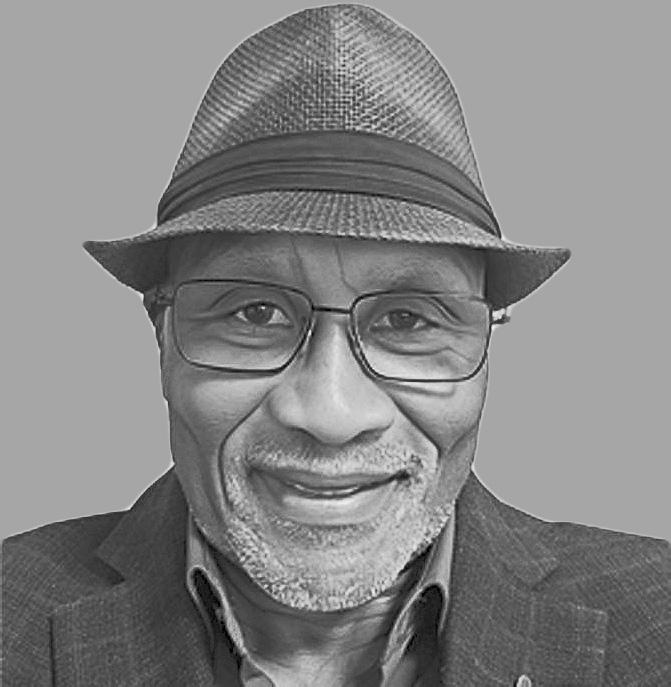
but feedson dependency,preventing individuals from taking charge of their own growth and success.
Theironyisthatentitlement doesn’t only existamong the poor. It s universal. Some expectprivileges frombirth, othersexpect welfarebydefault. Bothshare thesame psychologicalflaw: abelief that effort is optional.
Governments, intheir attempt to appear compassionate, often enable this mindset.Aid becomesanaddiction. Safetynets become hammocks. Dependency becomes identity. What was meant to lift people becomes the veryweight thatkeeps them grounded in mediocrity.
When individuals believe thattheir well-beingis someone else s responsibility, they surrender their agency, and with it, their dignity.
True self-worth isnot built on charity orentitlement. It is built oncompetence, contribution, and self-efficacy,the belief that I can.
The envy epidemic If there’sone psychological disease plaguingour era,it’s envy. Envy isn t simply wanting what others have. It’s resenting them for having it. It’snot admiration.It’s quiethatred dressedasmoral critique. We see iteverywhere: on social media,in workplaces,
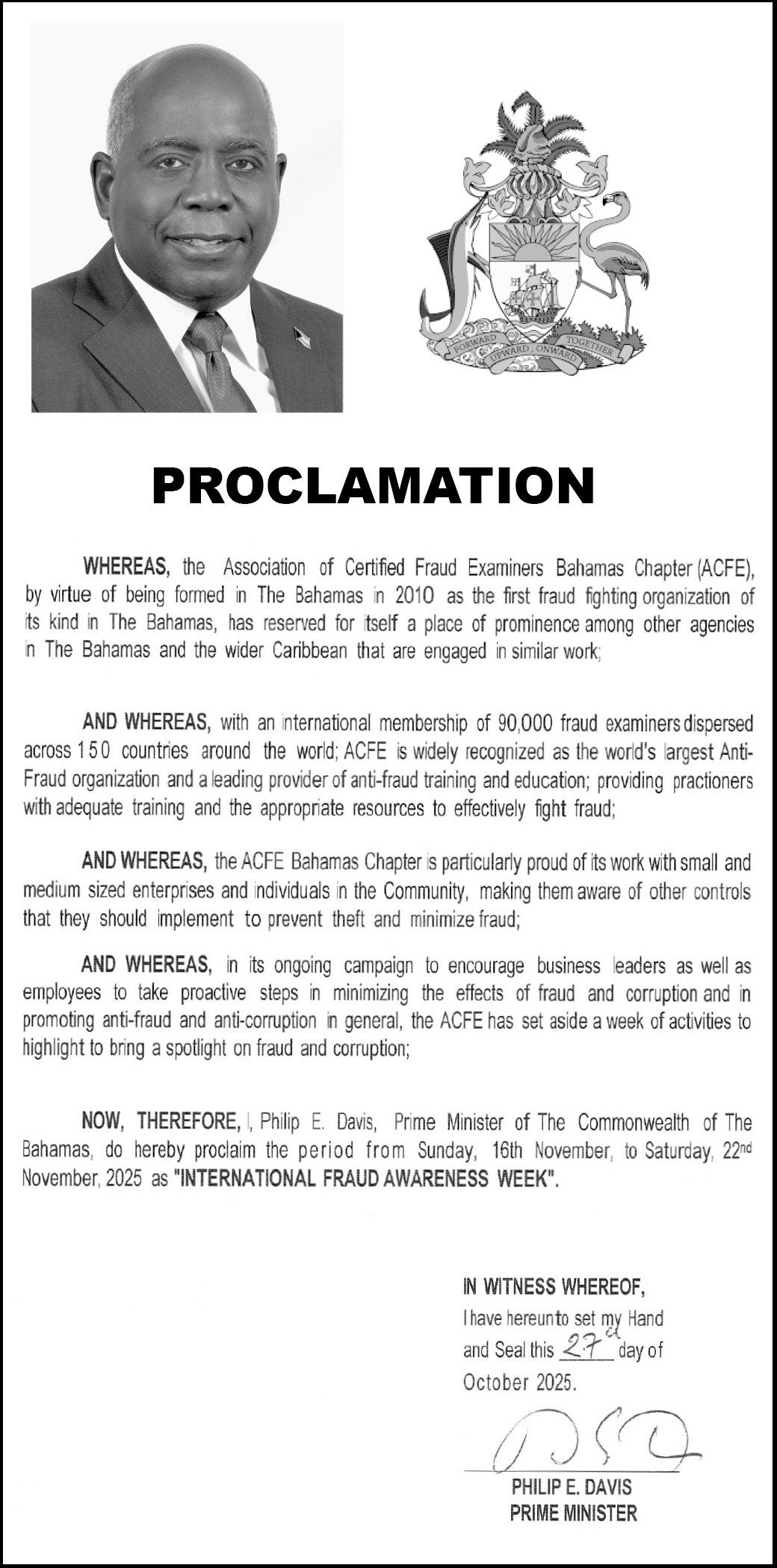
in politics. A neighbour s new car is proof ofgreed. A friend’s promotion is proof of nepotism. Someoneelse s happiness feels like a personal attack. Envycorrodes the mind fromwithin, creatinga zero-sum world where one’s success equals another s loss.
Andyet,envyisateacher.It reveals our mostprofound insecurities, thethings wewish we were doingbut aren’t. The problem isn t thatenvyexists. It’sthat wedon’t transmuteit into inspiration. Instead of asking “How didthey do it?” weask “why them?” To grow, we must learnto turn envy intomotivation anduse itas fuel for our own progress. Psychologically, envyfeeds off comparison,and comparison thrives whenpurpose dies.A personconsumedwith theirmission doesn t have time tomonitor someone else s harvest.
The achiever’s dilemma Let s notromanticize the achieverseither. Manywho make it become trapped in a different kindof psychologicalloop: defensiveguilt. They feel accusedsimply for existing comfortably.Their success becomes a burden, a source ofconstant self-justification. They learn to underplay their accomplishments, toapologize fortheir prosperity,todonatenotoutof generositybut outofguilt. Theachiever, fearingresentment, withdraws, first emotionally, thensocially. Hence, the gatedcommunities, the private schools, the exclusive clubs. They’renot justphysical walls. They re psychological fortresses against judgment.
But that isolationcomes withacost.Theachieverloses touchwith thepulseof common humanity. Success without connection leads to emotional starvation.People thrive when they’re respected, not resented, and that respect mustcome fromreciprocity, not dependence.
Responsibility: the forgotten virtue Responsibilityis theinvisiblecurrency ofcivilization. It’s not age that separates maturity from adolescence, but accountability. And yet,in a culture obsessedwith comfort,responsibility hasbecome the leastdesirable virtue.
The modern psyche often equates responsibilitywith oppression. Takingresponsibilitymeans admittingagency, which threatens the victim narrative. Yet, without obligation, thereis noempowerment. Formen inparticular, thepsychological burdenof responsibilityis bothsacred andnecessary. Aman’s selfesteem,though oftenmisunderstood,isdeeply tiedtohis ability to provide, protect, and produce. Thisisn t acultural myth, it’sbiological psychology. Men who abandon this duty don tjust failtheir families, they failtheir ownsense of self.
Excuses may comfort the ego, but they bankrupt the spirit. Thefirst actof transformation is not waiting for helpbut refusingto behelpless.
The mirage of fairness
We oftensay “life isn’t fair, but werarely graspthe profundityof thatstatement. Fairness is nota natural law, it sa socialinvention.Nature doesn’t distributeevenly. Some areborn withsharper minds, otherswith stronger backs. Someinherit fortune, othersinherit struggle.But what we dowith the hand we re dealt, that swhere psychology meets destiny. True fairness isn t equaloutcomes, it sequal opportunitytoexert effort. Whenwe mistake equalityfor sameness,we crushexcellence underthe weight of mediocrity.
When the achiever stops apologizing for success, and the underachiever stops blaming others for failure, the field will indeed be level.
versely,to destroy,through envy, laziness, orcynicism, is to dismantleone’s owndignity. Thosewhoteardownothers to feel tallend upliving inthe ruinsoftheirbitterness.Those who build,even slowly,stand on the foundation of self-respect.
The false comfort of complaint
Atruly levelfielddoesn t mean everyone wins. It means everyone has a chance to play. Buttoplay,onemustshowup, mentally, physically,spiritually. Toomany siton thesidelines, critiquingthe game while waiting for someone else to pass them the ball.
The spiritual dimension of effort At the coreof all achievement liesa divinetruth: we were created with the capacity tothink,build, andgrow.To relysolely onman,government, institutions, and benefactorsistoinsulttheverygift of consciousnessthat separates us from beasts. When people ignore their God-given brain, they surrender not just intellect but destiny.Every actofcreation-from artto enterprise--isan act of spiritual worship. To useone stalentistohonourits source. It’s noaccident thatthe most fulfilledindividuals are not necessarily the wealthiest, but those whocreate and contribute.Purpose feedsthesoul more than charityfeeds the stomach. Success achieved through honest effort brings peace becauseit harmonises the humanpsyche. Effortvalidatesexistence.Andwheneffortbirthsresults,itfuelsgratituderather thanentitlement. Gratitude,unlike envy,expands the spirit. It connects rather than divides.
Recalibration and resilience
Nojourney islinear. Obstacles areinevitable, and how oneresponds tothem determines whether they ascend or decay. Resilienceisn t the absenceofstruggle,buttheart of recalibration.When faced with a bump, go around it. Whenfacedwithawall,climb or builda door.When faced with adead end,turn around, not in surrender, but in strategy. Failure onlybecomes final when the minddecides it is. Each setback is feedback, a mirror showing uswhat to adjust.The problemisn’t that lifethrowscurveballs.It’sthat too many peoplerefuse to swing again. Resilience transformspain into progress.It turns “why me?” into “try me.” And that mindset is what separates achievers from spectators.
The pleasure of building There isan incomparable satisfactionthat comesfrom building something anything--with one sown hands, sweat,and mind.It’s aprimal joy,rootedinourevolutionary need for mastery and control.
To build isto participate in creationitself. Whetherconstructing abusiness, afamily, ora reputation,everybrick laid with intention strengthens the builder’s identity. Con-
Complainingofferspsychological relief,but it’s counterfeit. It simulates control without producing change. Chronic complainersdevelop alearnedhelplessness,abelief that nothing theydo matters, so they stoptrying. This mentalstate isfar moredangerous than poverty.It’sa spiritual paralysis. When society normalizes complaint, it breeds cultures of dependence. It turns citizens into beggarsand thinkersinto critics.Themore we complain, the less we create,andthe morewedestroy the very field we claim to wantlevelled. The solutionis not silence,but constructive self-examination. Insteadof asking, why don t theyhelp us?”weshouldask,“whatcan we build? That shift from expectation to executionis the birth of empowerment.
A call for psychological maturity
Wearelivingthroughanera of emotional adolescence, where feelings often override factsand blamereplacesaccountability. Tomove forward, societies mustcultivate psychological maturity:the ability tothink critically,act independently, and empathize without enabling. Levellingthe fielddoesnot mean redistributing outcomes. Itmeansrediscoveringdignity through effort. A mature society doesn t coddle laziness orglorify envy.Itcelebrates perseverance, discipline, and responsibility, notbecause theyare moralduties, butbecausethey arepsychological necessitiesfor humansto flourish.
Reclaiming the human spirit Ultimately, successand failure are not economic conditions,theyarepsychological states. A millionaireplagued by guilt and emptiness is no more successfulthan abeggar content indelusion. Thetrue wealth of a person lies in their mindset, not their means. Wemust stopwatching othersand startworkingon ourselves.We muststop envyingand startevolving. Wemuststopwaitingandstart building.
For those who have achieved,share wisdom,not guilt. For thosewho haven’t, seek inspiration,not excuses. Society is nota ladder where one must pull another down to climb. It s afield where everyone can sow,reap, and rise in their own way.
When the achiever stops apologizingfor success,and the underachiever stops blamingothers forfailure,the fieldwillindeed belevel.Not becauselife becamefair,but becausethe mindbecame free.
Facing reality The levellingof theplaying field begins notwith policies or politics, but with psychology.Untilindividualsreclaim theirsenseof agency,noredistribution, no reform, no revolution will suffice.
A mind liberated from envy and fortified by purpose doesn’t needthe fieldto be level. Itsimply needsspace to run.And whenwe allstart running, driven by gratitude, grounded in responsibility, and guided byeffort, we mightfinally realizethatthe field was never tilted against us.
Itwas justwaitingfor usto stand up and play.
Camille’s friends messaged her family to share their plan to carry her memory across the spring commencement stage in her honour
HONOUR from page one
He said one of her friends messaged the family ahead of this year’s Spring commencement, telling them students planned to carry Camille’s memory across the stage. Many wore funeral pins and stoles bearing her name and picture during the ceremony.
Watching the livestream in May was emotional, he said, especially for their mother, who had struggled with the reminders of Camille’s death at home.
“She didn't want to keep any of the photos, she wanted to turn them down,” he said. “Some things she wanted to keep up just to remind her, but she didn’t want to see a lot of it.”
Mr Mitchell created a shrine in their home with Camille’s belongings, saying it helped the family cope.
He said her classmates told him she motivated them to push through college, with
several saying she was the reason they continued their studies.
Camille was diagnosed with cancer in December 2022. Her academic success and leadership roles — including serving as vice president of the Key Club — made her death widely felt among friends and relatives.
Mr Mitchell, who is studying education in the United States, said the family still grapples with the loss. His youngest sister is now pursuing cellular and molecular biology, a shift he believes was influenced by Camille’s illness. He said her death taught them to prioritise time together and deepened the family’s reliance on faith.
He said this year’s graduation tribute offered his mother comfort, as Camille’s friends shared photos and messages with her. He added that she had treated many of those students like her own children.

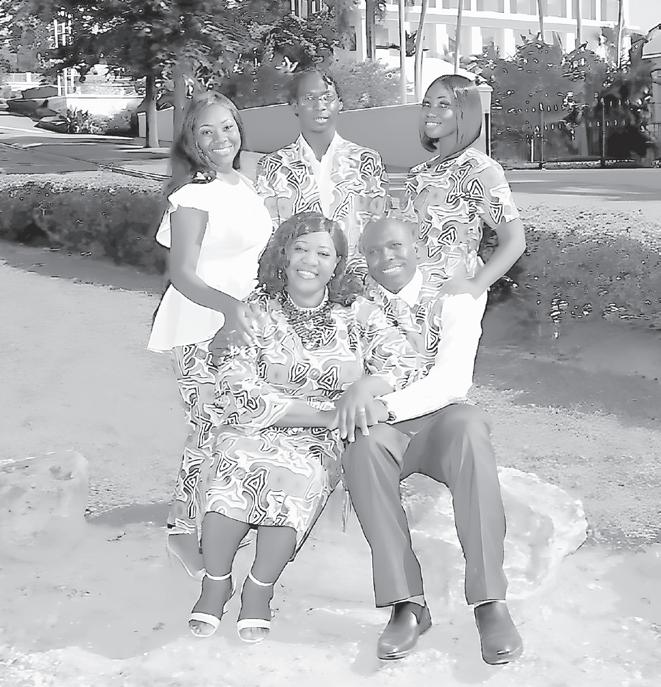
By RASHAD ROLLE Tribune News Editor rrolle@tribunemedia.net
THE Privy Council has dismissed the final appeal of Deon Antonio Watson, shutting the door on a decade-long challenge to his convictions from the violent 2012 robbery of Scotia Bank in Stella Maris.
The ruling affirms that a Bahamian jury acted rationally — not inconsistently — when it cleared Watson of robbery but convicted him of a series of firearm offences arising from the same incident.
Watson and co-accused
Hancel Rolle stormed the Long Island bank branch on May 31, 2012, masked and carrying guns. Employees described two men: one tall and light-skinned, the other short and dark. Inside the bank, chaos unfolded — gunshots in offices and hallways, doors kicked in, cameras shattered, vault staff ordered at gunpoint to open the safe while the gunman counted down and threatened to kill someone.
That distinction between the two men proved decisive.
At their 2016 trial, the jury split the defendants’ outcomes. Rolle, identified as the shorter gunman who aimed at staff and grabbed money from drawers, was convicted of the robberies. Watson, identified as the taller man who forced the manager and assistant manager at gunpoint toward the vault, was found guilty of three counts of possession of a firearm with intent to endanger life and one count of damage. He was acquitted of the robbery counts.
Watson appealed on the basis that the verdicts
made no sense: if the jury believed he was in the bank with a gun and threatening employees, then they should have convicted him of robbery as well. The Court of Appeal rejected this argument in 2020. The Privy Council has now dismissed it completely.
Writing for the Board, Lord Stephens ruled that the jury had acted precisely as the law allows — by separating the defendants’ actions count by count.
The prosecution had invited the jury to treat the two men as a joint venture. But the trial judge properly told the jury that joint venture was not mandatory: they could accept or reject it. According to the Privy Council, the jury clearly rejected it and focused instead on what each man personally did inside the bank.
For Rolle, witnesses described specific acts that matched robbery: pointing a gun in tellers’ faces, demanding cash, shooting at the camera, and firing at a glass partition behind which an employee stood.
For Watson, witnesses described a different pattern: forcing the manager and assistant manager toward the vault, kicking open the manager’s door, firing at that door, and holding both women at gunpoint while threatening to start a deadly countdown if the vault did not open.
None of the robbery acts was attributed to Watson. All of the firearm-endangering acts were.
Because of that distinction, the Privy Council said, the split verdicts were entirely logical.
Watson also argued that his conviction for endangering the life of branch
manager Winifred Curry was flawed because there was no evidence he knew she was inside her office when he shot at the door.
The Privy Council rejected this argument immediately, noting that the issue had never been raised at trial and could not now be used to claim the jury acted irrationally.
He further contended that his caution statement — which he later disavowed — compelled the jury to treat the robbery as a joint venture. The Privy Council found that a jury is free to accept parts of a confession while rejecting other parts and is not bound to conclude a joint plan existed simply because two men carried guns into the same building.
The Board stressed that the law sets a high bar for overturning convictions on the basis of inconsistent verdicts. An appellant must prove that “no reasonable jury” could have reached the split result. In Watson’s case, the Board said, the opposite was true: the verdicts showed the jury worked carefully and methodically, matching each offence to the man witnesses saw commit it.
The Privy Council also pushed back at a suggestion in the Court of Appeal’s judgment that the jury should have been told their verdicts “must” be the same if they believed Watson was present. That, the Privy Council said, would have been a misdirection by assuming a joint venture that the jury was free to reject.
Concluding its judgment, the Privy Council said there was “no spectre of inconsistency” and dismissed Watson’s appeal in full.


Travel agent charged with stealing found unresponsive in holding cell
By DENISE MAYCOCK Tribune Freeport Reporter dmaycock@tribunemedia.net
FORMER Grand Bahama travel agent
Eunice Morris — who was arrested and charged after 15 years on the run — is in serious condition in hospital after she was found unresponsive in custody following her court arraignment last Friday.
According to reliable sources, Morris was rushed to the Rand Memorial Hospital after officers found her unresponsive in a holding cell.
On Friday, she appeared in the Grand Bahama’s
Magistrates Court, where she was charged with two counts of stealing by reason of service. Prosecutors allege that sometime in 2011, she stole thousands from clients. She pleaded not guilty to all charges. Morris was granted $20,000 bail with one or two suretors and ordered to sign in at a police station three times per week. The matter was adjourned to March 2026.
Morris, the owner of Morris Travel Agency, had been accused of taking client funds in 2011. A complaint was filed with police at the time, but she had already left the country and was believed to be residing in the Turks and Caicos Islands. Due to her citizenship status there, she could not be extradited to The Bahamas. Recently, while travelling through the Cayman Islands, authorities detained her and deported her to The Bahamas, where she was arrested upon arrival to New Providence. She was flown to Grand Bahama on Friday. It is understood that additional complaints may be filed this week by other people who claim they were defrauded before Morris reportedly fled the island in 2011.
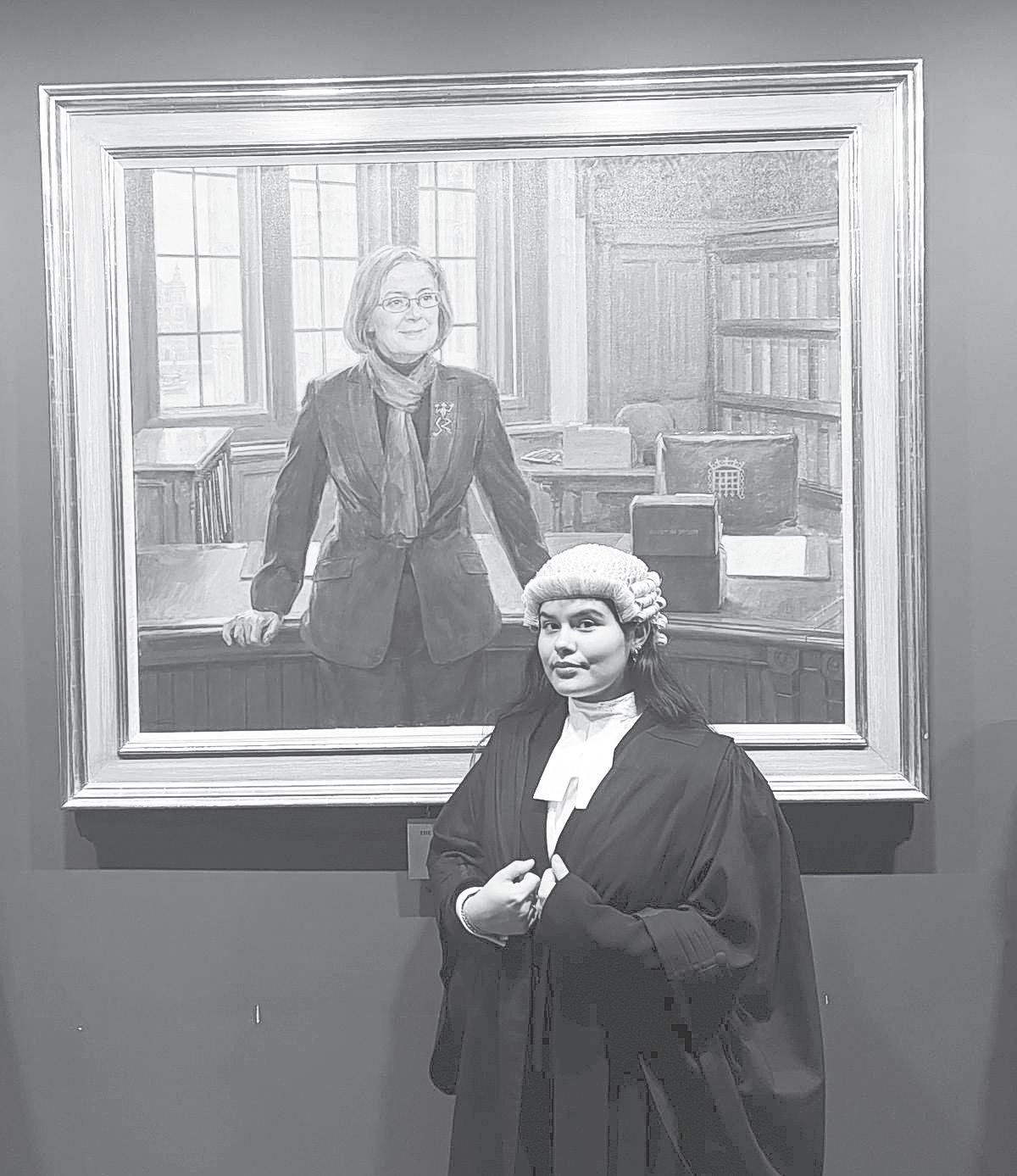
By GERALD IMRAY Associated Press
THE first Group of 20 summit in Africa that ended Sunday broke new ground by putting the priorities of poor countries at the top of the bloc’s agenda.
Host South Africa negotiated a summit declaration signed by some of the world’s richest and top emerging economies that agreed to give more global attention to issues that especially affect developing nations.
They included the impact of climate change on poor countries, the rising debt levels and unfair borrowing conditions they face, and their call for help to transition to green energy sources.
But the United States, a G20 founding member and the world’s biggest economy, boycotted the summit, didn’t sign the declaration, and the Trump administration has declared it is opposed to South Africa’s agenda — especially the parts that focus on climate change.
From Monday, the US takes over the rotating presidency of the G20, leaving the long-term impact of the South African declaration unclear.
The 21-member G20 was formed in 1999 to tackle global economic problems. Members include the US, China, Russia, India, France, Germany and the UK, but also nations like Brazil, Indonesia and South Africa, and the European Union and African Union.
The 122-point declaration issued at the Johannesburg summit is not a binding document, but rather an indication of consensus.
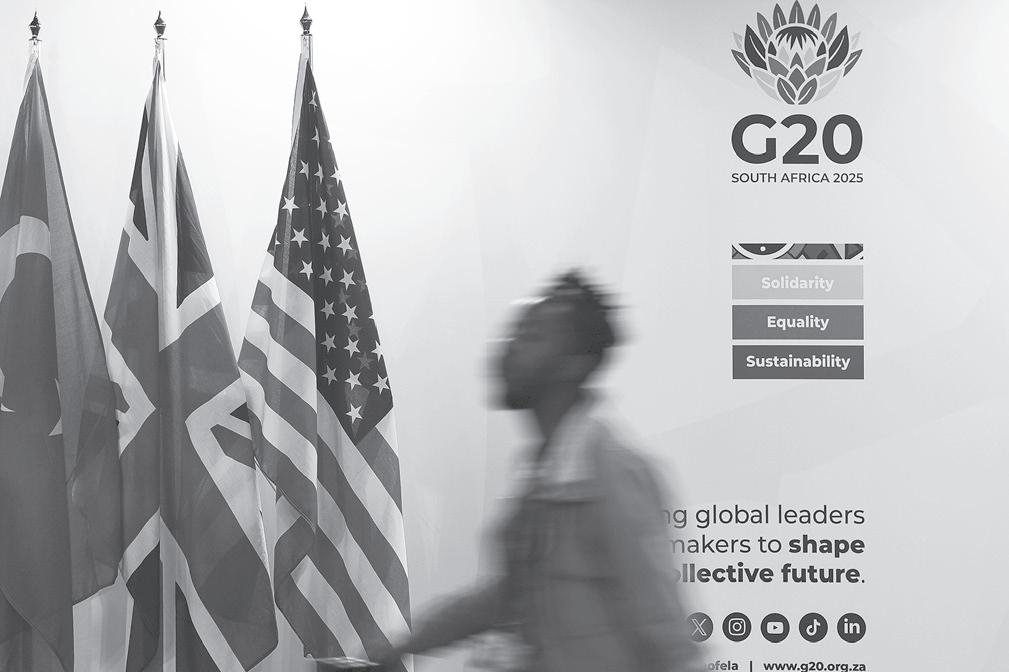
them (the US).”
The G20 works on a “troika” system where the previous, current and next summit hosts work together through the year.
That means the US will have to work over the next 12 months with South Africa, a country it has repeatedly singled out for criticism and sanctions since Trump returned to office, leaving their relations at their lowest since the end of apartheid 31 years ago.
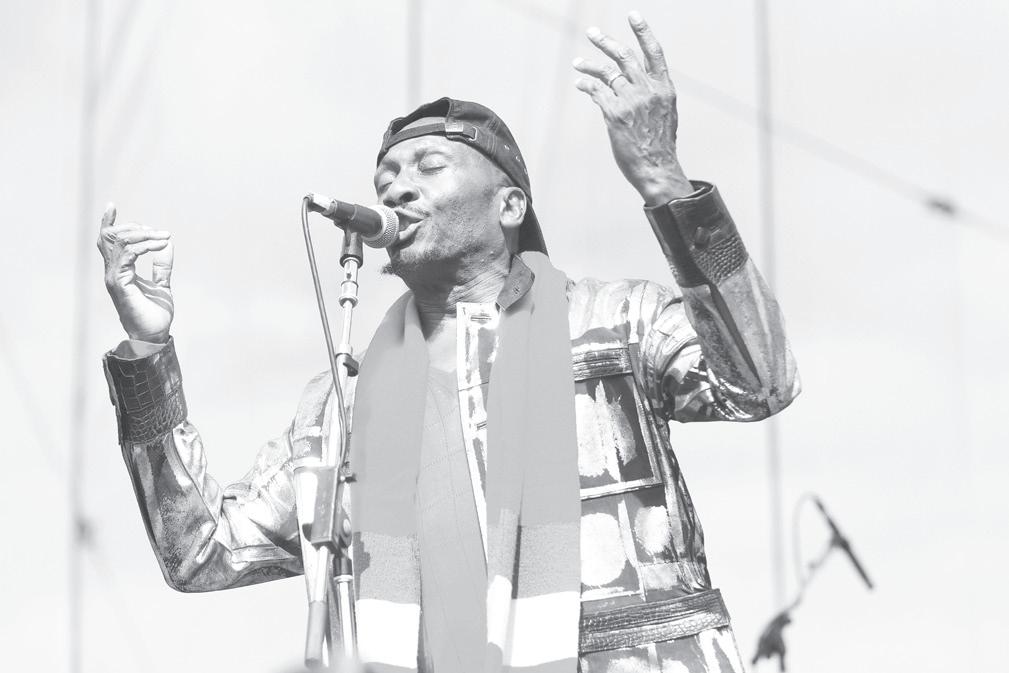
some of the biggest crises.
Africa contributes the least to global warming, for example — around 2-3% of global emissions, according to the UN — but is experiencing some of its worst impact. Recent cyclones made stronger by climate change caused billions of dollars of damage across Mozambique, Malawi and Zimbabwe.
Some developing nation representatives were invited to the summit as guests and explained their challenges around debt and borrowing, especially in Africa.
Sierra Leone President Julius Maada Bio, head of the West African economic bloc, said countries in his region faced up to eight times higher interest rates for international loans than rich countries.
Namibia President Netumbo Nandi-Ndaitwah said her country was viewed as high-risk by lenders despite recently paying back a $750 million bond on time.
“Africa doesn’t need charity,” Bio said, “but fair borrowing conditions.”
While leaders called the Johannesburg summit a milestone, questions were raised over the effectiveness of the bloc in confronting
It says nations agreed to work together to help mobilize public and private finance to help poor countries recover from climate-related disasters, which are becoming increasingly devastating for them.

Associated Press
THE nation’s top military officer is visiting American troops Monday in Puerto Rico and on a Navy warship in the region, where the US has amassed an unusually large fleet of warships and has been attacking alleged drug-smuggling boats.
Gen. Dan Caine, the chairman of the Joint Chiefs of Staff and President Donald Trump’s primary military adviser, will be joined by David L. Isom, the senior enlisted adviser to Caine. Caine’s office said in a statement that the men will “engage with service members and thank them for their outstanding support to regional missions.”
This will be Caine’s second visit to the region since the US military started building up its presence, which now includes the nation’s most advanced aircraft carrier. Caine and Defense Secretary Pete Hegseth came to Puerto Rico in September after ships carrying hundreds of US Marines arrived for what officials said was a training exercise.
Hegseth said then that the deployed Marines were “on the front lines of defending the American homeland.”
Caine’s visit this week comes as Trump evaluates whether to take military action against Venezuela, which he has not ruled out as part of his administration’s escalating campaign to combat drug trafficking into the US The build-up of American warships and the strikes, which have killed
more than 80 people on 21 alleged drug boats, are seen by many as a pressure tactic on Venezuelan President Nicolás Maduro to resign. The Trump administration also is ramping up pressure by designating the Cartel de los Soles, or Cartel of the Suns, as a foreign terrorist organization, although the entity that the US government alleges is led by Maduro is not a cartel per se.
Until this year, the label of foreign terrorist organization had been reserved for groups like the Islamic State or al-Qaida that use violence for political ends. The Trump administration applied it in February to eight Latin American criminal organizations involved in drug trafficking, migrant smuggling and other activities.
The administration blames such designated groups for operating the boats it is striking but rarely identifies the organizations and has not provided any evidence.
Hegseth said last week that the designation of Cartel de los Soles will provide a “whole bunch of new options to the United States” for dealing with Maduro. In an interview with conservative news outlet OAN, Hegseth did not provide details on what those options are and declined to say whether the US military planned to strike land targets inside Venezuela.
“So nothing is off the table, but nothing’s automatically on the table,” he said.
The war in Ukraine was mentioned just once in the declaration, in a general reference calling for the end of conflicts. The ongoing African crisis of the Sudan civil war also had just one mention in the same paragraph and no proposals to end it despite its destructive impact on the region.
French President Emmanuel Macron said the G20 was at an inflection point because it was “struggling to have a common standard on geopolitical crises.”
The summit ended with an uncomfortable moment. Traditionally, the host country hands over a symbolic wooden gavel to the nation taking over the G20 presidency, but no US official was there to receive it from South African President Cyril Ramaphosa because of the boycott.
The US wanted to send a representative from its embassy, but South Africa refused that, saying it was an insult for Ramaphosa to hand over to what it called a junior official.
After the ceremony, Brazilian President Luiz Inácio Lula da Silva picked up the gavel and playfully swung it at an official next to him while saying to Ramaphosa in comments picked up by microphones: “I’ll take it to
Trump said that the G20 summit in 2026 will be at his golf club in Doral near Miami, Florida, but insisted his family’s business would not make any money off it.
The G20 under US leadership will also look very different, US officials said, as they criticized South Africa for inviting so many extra nations to this weekend’s summit as guests. South Africa said it wanted to be as inclusive as possible.
“We have whittled down the G20 back to basics,” US Treasury Secretary Scott Bessent said. “The G20 had become basically the G100 this past year.”
Trump has called for South Africa to be thrown out of the G20 over his widely rejected claims it is violently persecuting its Afrikaner white minority, and a South African government spokesperson was asked if South Africa had any fears that the US might refuse to give its delegations visas to travel next year for the dozens of G20 meetings that take place in the months ahead of a summit.
“Like any other country, they can decide to give you a visa or not,” South African spokesperson and Cabinet Minister Khumbudzo Ntshavheni said. “It doesn’t change the price of bread.”
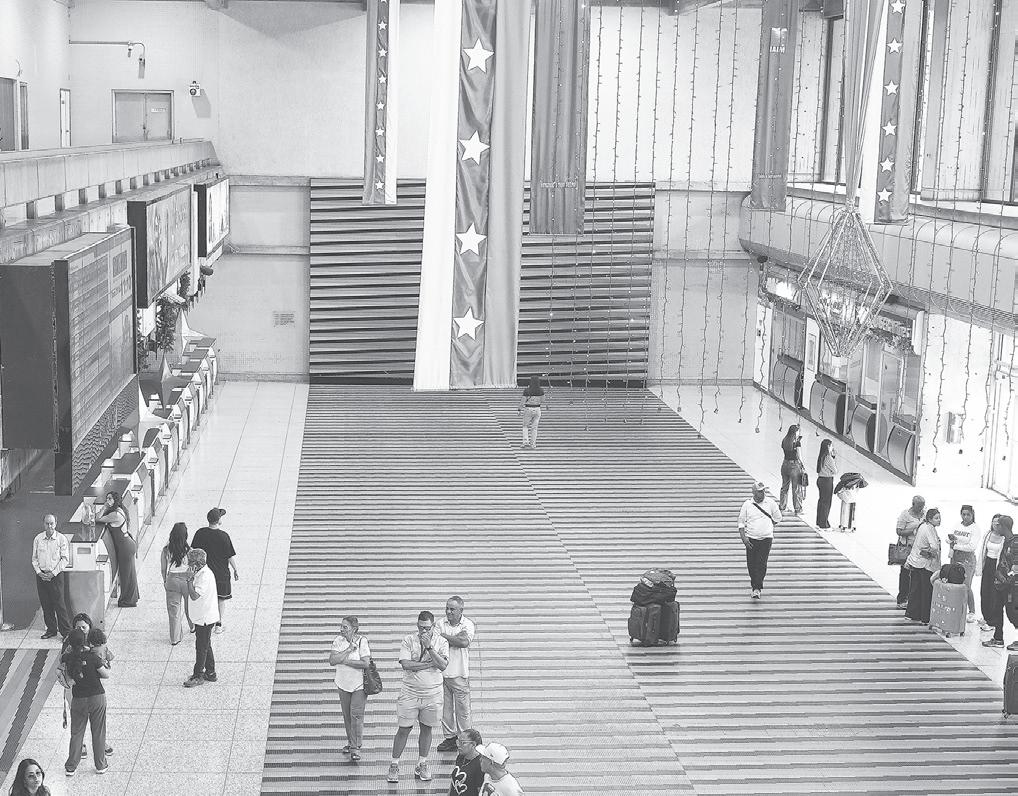
wait in the main
International Airport in
Venezuela, Sunday after several international airlines cancelled flights following a warning from the US Federal Aviation Administration about a hazardous situation in Venezuelan airspace.
CARACAS Associated Press
INTERNATIONAL
airlines increasingly cancelled flights to Venezuela on Sunday after t he US Federal Aviation Administration warned pilots to use caution when flying in the country’s airspace because of worsening security and heightened military activity.
Marisela de Loaiza, president of the Airlines Association in Venezuela, told The Associated Press that six carriers have indefinitely suspended flights: TAP, LATAM, Avianca, Iberia, Gol and Caribbean. Turkish Airlines suspended flights from November 24 to 28.
Colombian President Gustavo Petro wrote Sunday on X that “there must be regular flights to all Latin American countries and from Latin America and the world.”
“Countries are not blocked, because blocking countries means blocking people, and that is a crime against humanity,” Petro added.
On Friday, the FAA warned pilots that unspecified threats “could pose a potential risk to aircraft
at all altitudes” as well planes taking off and landing in the country and even aircraft on the ground.
The warning came as the Trump administration has ramped up pressure on Venezuelan President Nicolás Maduro. The US military has conducted bomber flights up to the coast of Venezuela, sometimes as part of a training exercise to simulate an attack, and sent the aircraft carrier USS Gerald R Ford into the region.
The Ford aircraft carrier and several destroyers were just the latest addition to the largest US force assembled in the Caribbean Sea near Venezuela in generations. The Trump administration does not see Maduro, who faces charges of narcoterrorism in the US, as the legitimate leader of the South American country.
The Trump administration also has carried out a series of strikes on small boats in the Caribbean Sea and eastern Pacific Ocean that it accuses of ferrying drugs to the US, killing over 80 people in total since the campaign began in early September.
By HILLEL ITALIE AP National Writer
JIMMY Cliff, the charismatic reggae pioneer and actor who preached joy, defiance and resilience in such classics as “Many Rivers to Cross,” “You Can Get it If You Really Want” and “Vietnam” and starred in the landmark movie “The Harder They Come,” has died at 81.
His family posted a message Monday on his social media sites that he died from a “seizure followed by pneumonia.” Additional information was not immediately available.
“To all his fans around the world, please know that your support was his strength throughout his whole career,” the announcement reads in part. “He really appreciated each and every fan for their love.”
Cliff was a native Jamaican with a spirited tenor and a gift for catchphrases and topical lyrics who joined Kingston’s emerging music scene in his teens and helped lead a movement in the 1960s that included such future stars as Bob Marley, Toots Hibbert and Peter Tosh. By the early 1970s, he had accepted director Perry Henzell’s offer to star in a film about an aspiring reggae musician, Ivanhoe “Ivan” Martin, who turns to crime when his career stalls. Henzell named the movie “The Harder They Come” after suggesting the title as a possible song for Cliff.
“Ivanhoe was a real-life character for Jamaicans,” Cliff told Variety in 2022, upon the film’s 50th anniversary. “When I was a little boy, I used to hear about him as being a bad man. A real bad man. No one in Jamaica, at that time, had guns. But he had guns and shot a policeman, so he was someone to be feared. However, being a hero was the manner in which Perry wanted to make his name — an anti-hero in the way that Hollywood turns its bad guys into heroes.”
“The Harder They Come,” delayed for some two years because of sporadic funding, was the first major commercial release to come out of Jamaica. It sold few tickets in its initial run, despite praise from Roger Ebert and other critics. But it now stands as a cultural touchstone, with a soundtrack widely cited as among the greatest ever and as a turning point in reggae’s worldwide rise.
For a brief time, Cliff rivalled Marley as the genre’s most prominent artist. On an album that included Toots and the Maytals, the Slickers and Desmond Dekker, Cliff was the featured artist on four out of 11 songs, all well placed in the reggae canon.
“Sitting in Limbo” was a moody, but hopeful take on a life in restless motion.
“You Can Get it If You Really Want” and the title song were calls for action and vows of final payments: “The harder they come, the harder they fall, one and all.” Cliff otherwise lets out a weary cry on “Many Rivers to Cross,” a gospel-style testament that he wrote after confronting racism in England in the 1960s.
“It was a very frustrating time. I came to England with very big hopes, and I saw my hopes fading,” he told Rolling Stone in 2012.
Cliff’s career peaked with “The Harder They Come,” but, after a break in the late 1970s, he worked steadily for decades, whether session work with the Rolling Stones
or collaborations with Wyclef Jean, Sting and Annie Lennox among others. Meanwhile, his early music lived on. The Sandinistas in Nicaragua used “You Can Get it If You Really Want” as a campaign theme and Bruce Springsteen helped expand Cliff’s US audience with his live cover of the reggae star’s “Trapped,” featured on the million-selling charity album from 1985, “We Are the World.” Others performing his songs included John Lennon, Cher and UB40. Cliff was nominated for seven Grammys and won twice for best reggae album: in 1986 for “Cliff Hanger” and in 2012 for the wellnamed “Rebirth,” widely regarded as his best work in years. His other albums included the Grammy-nominated “The Power and the Glory,” “Humanitarian” and the 2022 release “Refugees.” He also performed on Steve Van Zandt’s protest anthem, “Sun City,” and acted in the Robin Williams comedy “Club Paradise,” for which he contributed a handful of songs to the soundtrack and sang with Elvis Costello on the rocker “Seven Day Weekend.”
In 2010, Cliff was inducted into the Rock and Roll Hall of Fame.
He was born James Chambers in suburban Saint James and, like Ivan Martin in “The Harder They Come,” moved to Kingston in his youth to become a musician. In the early 1960s, Jamaica was gaining its independence from Britain and the early sounds of reggae — first called ska and rocksteady — were catching on. Calling himself Jimmy Cliff, he had a handful of local hits, including “King of Kings” and “Miss Jamaica,” and, after overcoming the kinds of barriers that upended Martin, was called on to help represent his country at the 1964 World’s Fair in New York City.
“(Reggae) is a pure music. It was born of the poorer class of people,” he told Spin in 2022. “It came from the need for recognition, identity and respect.”
His popularity grew over the second half of the 1960s, and he signed with Island Records, the world’s leading reggae label. Island founder Chris Blackwell tried in vain to market him to rock audiences, but Cliff still managed to reach new listeners. He had a hit with a cover of Cat Stevens’ “Wild World,” and reached the top 10 in the UK with the uplifting “Wonderful World, Beautiful People.” Cliff’s widely heard protest chant, “Vietnam,” was inspired in part by a friend who had served in the war and returned damaged beyond recognition.
His success as a recording artist and concert performer led Henzell to seek a meeting with him and flatter him into accepting the part: “You know, I think you’re a better actor than singer,” Cliff remembered him saying. Aware that “The Harder They Come” could be a breakthrough for Jamaican cinema, he openly wished for stardom, although Cliff remained surprised by how well known he became.
“Back in those days there were few of us African descendants who came through the cracks to get any kind of recognition,’ he told The Guardian in 2021. “It was easier in music than movies. But when you start to see your face and name on the side of the buses in London that was like: ‘Wow, what’s going on?’”
By Allandra Russell
The Stigma That Fuels Delay For manyparents, the thought of testing a child for a learning disabilitycarries a weight that is often shaped by stigma rather than understanding. Toomany stillbelieve that adiagnosis signals something wrong,that itreflects poorly on their child, or worse, on themselves.As a result,testing isdelayed, avoided,or dismissed,even when thesigns areconsistent and thestruggles areevident. Yet,what oftengoesunnoticed is thathesitationdoes not shield achild; it simply prolongs the challenges they face.
What a Learning Disability Really Means
Learning disabilities are far more common than parents realize, andthey presentin childrenwho arebright, curious, capable, and eager to succeed. The issue is not intelligence butaccess. Thisis about givingchildren access tostrategies, approaches,and supportsthat alignwithhow they process information. The same way a child may require glasses to seethe board clearly, some children require accommodations tomake senseof thelearningplaced beforethem. Itisnot anindictment; it is an explanation. Whenthese explanationsare understood early,they can
change the entire trajectory of a child s educational experience.
The Quiet Cost of Waiting When parents delay testing, gaps widenquietly. Children spendyears believingthey arethe problem,internalising frustration and developing a senseof failurethat rarelyreflects their true potential. Early testing,however, provides clarity.It allows educators to tailor instruction, parents tounderstand how besttosupport athome,and childrento gainawarenessof their own learning profiles. When addressedearly, these gapscan beclosed,confidence can be restored, and the child is ableto experience schoolthrough alensthat supports rather than isolates.
The Value of Responding Early I am often reminded of my own daughter, who struggled to meetearly developmental milestones.She wasnot walking,not speaking,not progressingin thetypical way.I didnotwaitit out.I sought out assessments, engaged speech therapy, and ensured that the delay in her development wasnot prolonged by a delayin my response. Thatdecision madeallthe difference. Thissame urgency must be applied to academic milestones. A child’s learningshould neverbeleft
to chance or time. If something raisesconcern, the responsible stepis toassess, not assume.
What Teachers See Every Day In classrooms,teachers witnessthe effectsofdelayed testing every day. Students who are bright yet struggling tokeepup, childrenwhoshut downbecause thematerial seems inaccessible,learners who grow withdrawn as their peers advance. These are not signs of laziness or defiance; theyare signalsthatdeserve timely investigation. While schools work diligently to support students,the process ofobtaining testingcantake years, leavingmany tofall through thecracks. Families who canafford privateevaluations gain immediate clarity, while those who cannot are leftwaiting. Thisdivide should not exist.
The Need for Systemic Support and Training Wemust alsorecognize that learningdisabilities do not disappearwith age.Support, accommodations, and modified approachesare oftenlong-termneeds,similar to how a child requiring glasses will alwaysneed correctivelenses. Oureducation system must evolveto reflect this reality.Teachers require ongoing training in identificationand intervention,and schools must investin tools
and curriculathat acknowledge neurodiversityrather than retrofitinstruction after challenges arise.
Early Answers Change Lives
A learning disability is not a setback; it is a different route tothe samedestination. It describes the way a child absorbs, processes, and appliesinformation, andit equips educators withthe insight needed to teach effectively. Early testingoffers a framework that allows children to thrive academically without sacrificing their emotional well-being.If yoususpect your childmay be struggling, reach out to their teacher orguidance counselor. Earlyconversations lead to earlyclarity. Parents should neverfear answers. They should however fear the years a child spends believing they are incapablewhen the truthis farsimpler;they simply neededto beunderstood.Early testinggives themthat understanding,and withit, aclear pathforward instead of yearsspent struggling in silence.
Allandra Russellis aneducatorwithnearlytwodecades of experience inThe Bahamas. She holds degrees in both General and Special Educationandistheownerof Turning Pages Literacy Centeraswell asthefounder of The Teachers' Hub.
By FAY SIMMONS Tribune Education Reporter jsimmons@tribunemedia.net
Students atC.C. Sweeting Senior HighSchool joined their firstcandle-making workshop, markinga new addition to their Entrepreneurship and Commerce program.
The initiative welcomed 12 studentseager to try a hands-on,business-focused activity.The participants,all from Grade 11, were excited to explore both creativity and practical skills.
The workshop was facilitated by Business teacher Ms L Rolle, who guided studentsthrough each step of the candle-making process. Her dynamic approach helped studentsunderstandnot onlythe creativetechniquesinvolved, but also the entrepreneurial potential behind the craft. Supporting the sessionwere Ms Higgs andMs Bullard from theBAIC Orange EconomyDepartment, whose expertise added depth to the experience. They helped studentsgain aclearerunderstanding ofhow creativeindustriescontributetothelocaleconomyandcaninspiresmallbusiness ventures.
Thecandle-makingworkshop offeredstudentsaunique opportunity to combinecreativity with practical business skills. By engaging in this hands-on activity, participants notonlylearnedanew craft butalsogainedinspirationto explore entrepreneurial ideas of their own.
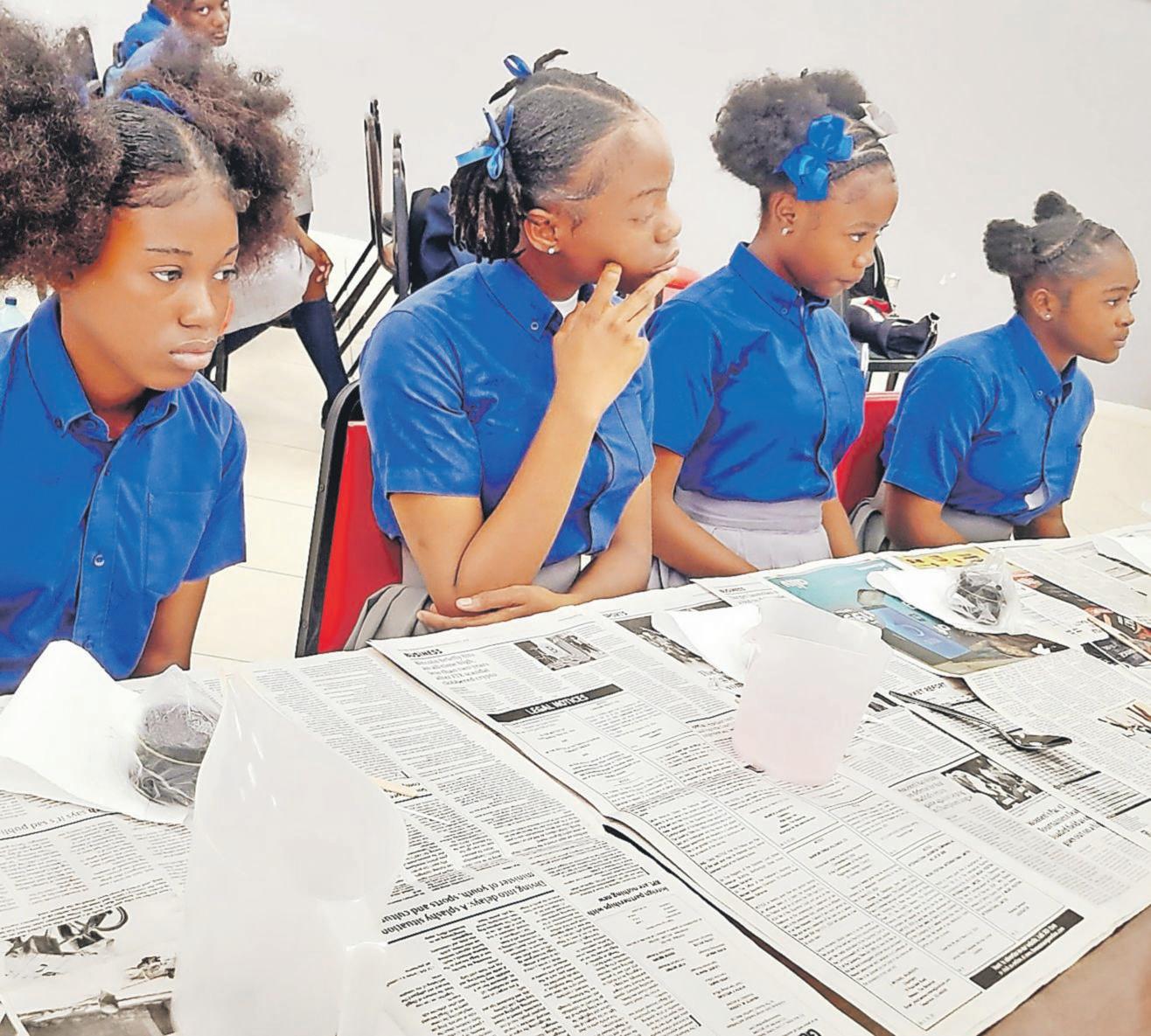
'Chefs don’t make mistakes, they create new recipes'
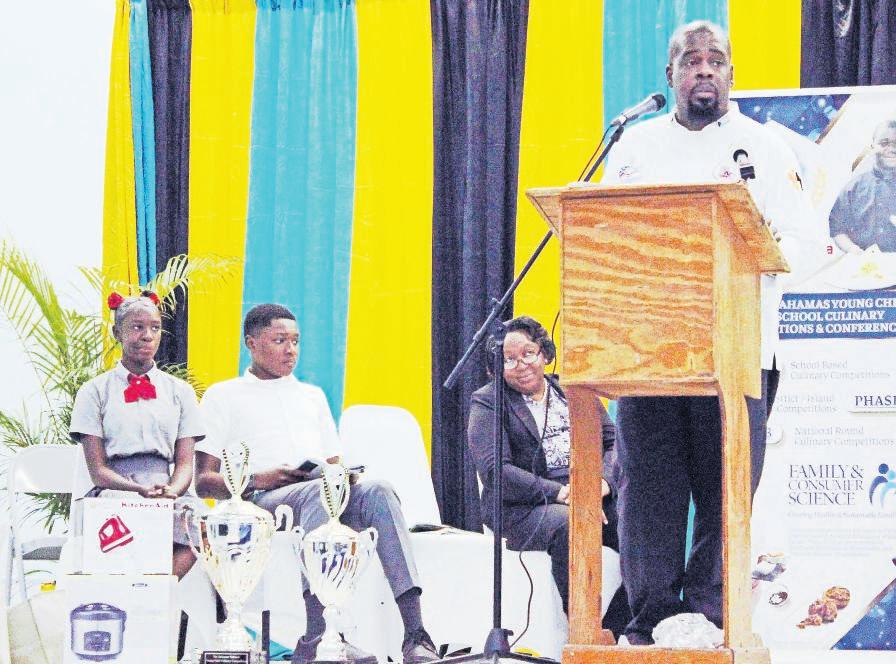
NASSAU, TheBahamas --The awards ceremony for the 33rdAnnual BahamasYoung Chef 2025 Culinary Competitions, and9th AnnualBahamas Young ChefCulinary Conference, was heldNovember 21, 2025 at Government High School.
Keynote speaker was Minister of Education and Technical andVocational Training, theHon.GlenysHanna-Martin.
Minister Hanna-Martin thanked the teacher mentors, coaches,and partnersfor their support; in addition to the business community,namely
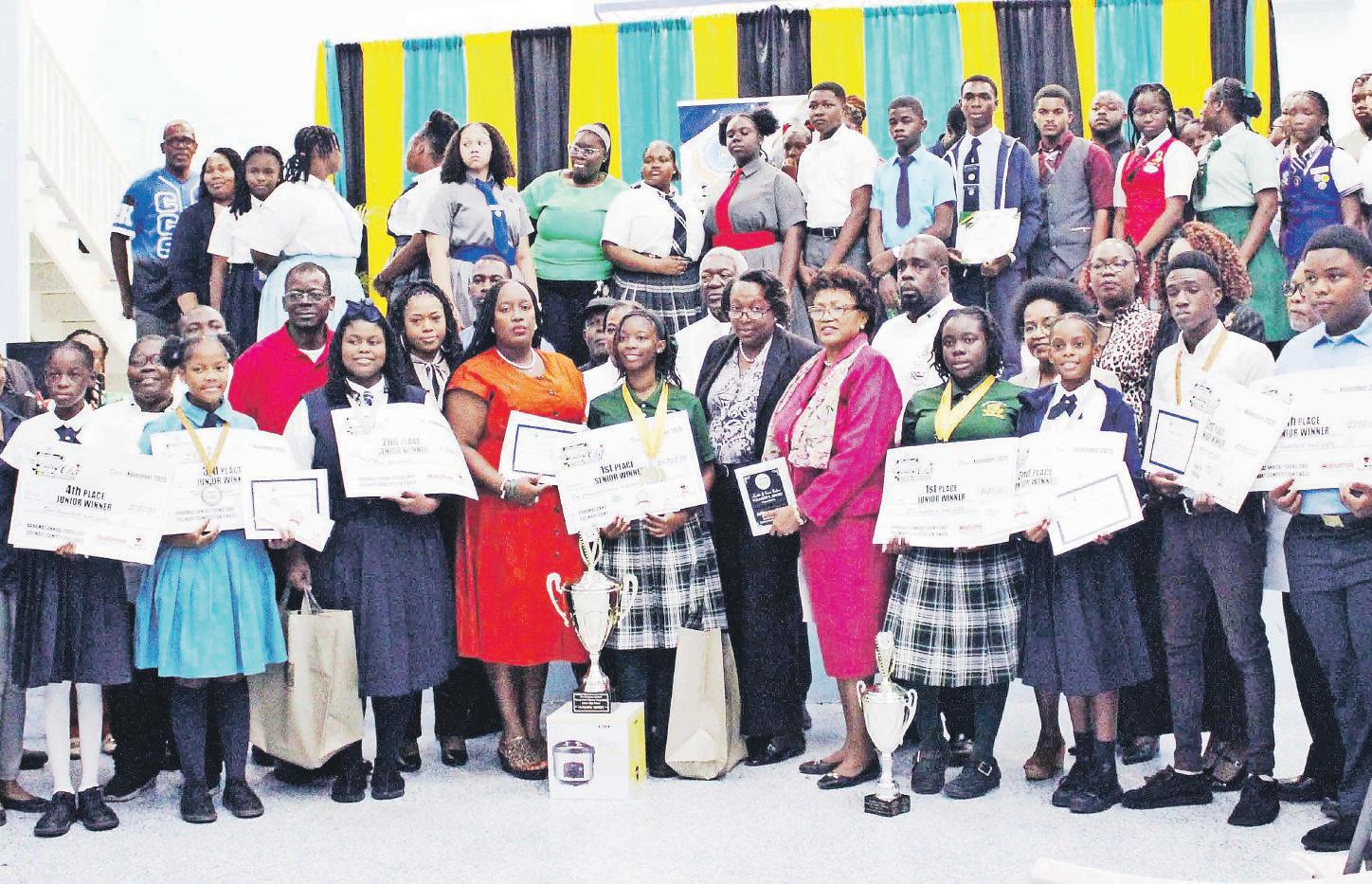
Mahatma Rice, Robin Hood Flour,distributor AsaH. Pritchard Limited; the team of chefs with specialthanks to Chief Judge Chef Gerald Rolle, and the participating universities, Johnson & Wales UniversityandSt.ThomasUniversity.
Minister Hanna-Martin conveyed thanksto themfor investing in the students' futures. She leftthis thoughtwith the students: “Whether your name is called today asa winner or not, do not forone second believe your journey ends here. You havealready won,you are not justlearning tocook; you arelearning tofeeda nation,to buildanindustry,andtotellour Bahamian story."
Chief JudgeChef Gerald Rolle hadthese remarks: "Today, we gather to celebrate farmore thanacompetition. We are here to honour creativity, courage, and passion.
As I watched each of you prepare yourdishes, Ididn t just see recipes beingfollowed, I sawideas comingtolife. Isaw talent in itspurest form, expressed throughcolours, textures,aromas, andflavours. And perhaps most inspiring of all, Isaw confidence.Confidence in yourhands, in your choices, and inyour unique culinary voices.
"Youhave proventodaythat
great cookingis notmerely abouttechnique, itisabout imagination. It sabout daring to try, daringto taste, and daringto create.And thatspirit is what will carry you forward in this beautiful, ever evolving world of cuisine.
"Here in the Bahamas, we are blessedwith anincredible tapestry of indigenous ingredients, vibrantfruits, freshseafood, aromatic herbs, and traditionalflavoursthattellthestory of our islands."
ChefRolle saidhe wishedto encourage them toexplore, saying: "Let our native ingredientsinspireyou.Letthemspark newideas, newcombinations, andnew culinaryexpressions that honour whowe are and wherewe comefrom.The world is hungryfor authenticity, and you hold the key in your hands.
"As you continue your culinary journey, I urge you to alwaysput yourbest foodforward, yes, yourbest food,because eachdish you createis a reflection of yourheart and your perspective."
He advised, "Keep pushing yourselves. Keeplearning. Keep experimenting.The culinary world is vast, exciting, and full of endless possibilities, possibilitiesthat eachofyou has the potential to shape."
Hetoldthem theyarethefu-
Top performers -- winners of medals, cash, prizes, scholarship opportunities were:
Junior High School (14 schools competed) -First place,
Central
tureofculinary arts,andafter witnessingtheir passionand skill,he feltthe future "looksincredibly bright."
"Never be afraidto mess up, afterall asoneof yourparticipants statedyesterday --'chefs don t make mistakes,they create new recipes.' Congratulations to allof you. Continueto dream,continueto create, and continue to taste your way toward greatness."
